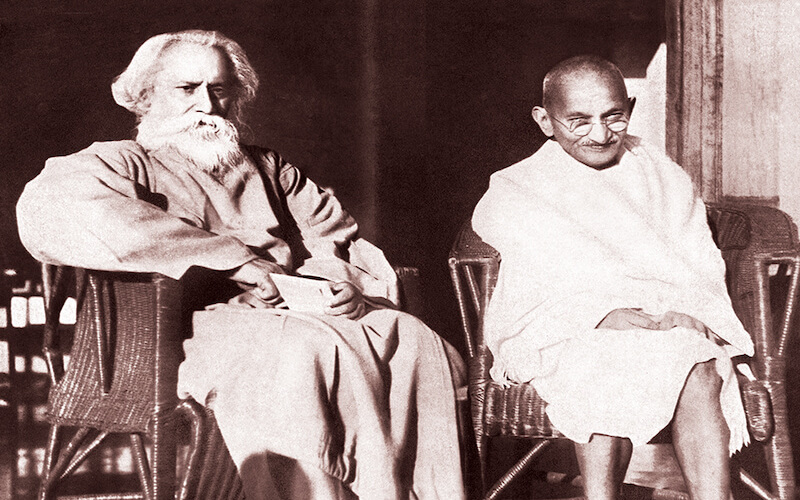
Rabindranath Tagore expressed his views on nationalism on many occasions. A collection of his three prominent essays on this theme were published in 1917 in a book titled ‘Nationalism’ (we have republished one of these essays). According to him, a nation, “in the sense of the political and economic union of the people, is that aspect, which a whole population assumes when organized for a mechanical purpose.”
Referring to a nation as a man-made ‘machine’, Tagore argues that the true spirit of nationalism lies in its broad humanistic concern rather than constrained political expediency. It is in this context that we see Tagore being at odds with Gandhi’s call for non-cooperation because, according to Tagore, the very idea of non-cooperation breeds negation. For Tagore, “the spirit of rejection finds its support in the consciousness of separateness, the spirit of acceptance in the consciousness of unity.” Tagore’s idea of Swaraj was never bound by territorial boundaries. Emphasizing the need to establish a “harmony between the physical and spiritual nature of man,” Tagore believes in the law of cooperation and the “true meeting of the East and the West.” “Love,” he says, “is the ultimate truth of soul… The idea of non-cooperation unnecessarily hurts that truth… ” Tagore presents a sharp critique of those who celebrate the “national carnivals of materialism” ultimately ignoring the “laws of moral health”. The aspirations of a people to achieve self-governance in a country are rooted, according to him, in a materialistic world, which he refers to as organizations made up of “National Egoism”. He adds, “It lies in the power of the materially weak to save the world from this illusion and India, in spite of her penury and humiliation, can afford to come to the rescue of humanity.” A believer in the idea of humanistic values, Tagore was critical of the militaristic and imperialistic attitudes that Swaraj gave birth to. Raising a cry for disarmament, on the path of seeking ‘truth’, he argues “that moral force is a higher power than brute force, will be proved by the people who are unarmed.” The destiny of India, he illustrates, “has chosen for its ally, Narayan [the power of the soul], and not the Narayani Sena [the power of the muscle].” To reinforce his reservations against non-cooperation, Tagore contrasts mukti (emancipation, as the object of Brahma-vidya) and nirvana (extinction, as preached in Buddhism): “Mukti draws our attention to the positive [emphasis on ananda (joy)], and nirvana to the negative side of truth [emphasis on avoiding dukkha (misery)].” In a similar vein, referring to non-cooperation as “political asceticism”, he argues that when students sacrifice their education in support of non-cooperation, they are not striving “to a fuller education, but to non-education.” He adds further, “the anarchy of a mere emptiness never tempts me, even when it is resorted to as a temporary measure.” Gandhi, in his reply to the Poet’s “horror of everything negative”, argues that “rejection is as much an ideal as the acceptance of a thing… All religions teach that two opposite forces act upon us and that the human endeavour consists in a series of eternal rejections and acceptances. Non-cooperation with evil is as much a duty as co-operation with good.” Pointing out Tagore’s analysis of Buddha’s nirvana as unjust, Gandhi adds that “mukti is as much a negative state as nirvana… the final word of the Upanishads (Brahma-vidya) is Not. Neti was the best description the authors of the Upanishads were able to find for Brahma.” In favour of his ideal, i.e. Swaraj, Gandhi argues that the non-cooperation movement is meant to alter the meanings of nationalism and patriotism and extend their scope. Taking the example of language, he highlights the political and commercial significance given to English, a foreign language, as opposed to vernacular languages. So much so that education is being equated with the knowledge of English. Pitying the condition of the vernaculars, then, Gandhi remarks, “All these are for me signs of our slavery and degradation. It is unbearable to me that the vernaculars should be crushed and starved as they have been… I refuse to live in other people’s houses as an interloper, a beggar or a slave.” Disagreeing with Tagore’s understanding of the movement, Gandhi goes on to question the former’s judgment of the “movement or reformation, purification and patriotism spelt humanity.” It is wrong, he argues, “to judge Non-cooperation by the students’ misconduct in London or Malegaon’s in India, as it would be to judge Englishmen by the Dyers or the O’Dwyers.” Gandhi also answers Tagore’s “anxiety” regarding the negation of cooperation in the movement by explaining his thoughts that went into the conception of this movement. “The present struggle,” Gandhi writes, “is being waged against compulsory cooperation, against one-sided combination, against the armed imposition of modern methods of exploitation, masquerading under the name of civilization. Non-cooperation is a protest against an unwitting and unwilling participation in evil.” Tagore, however, maintains his stand against the movement by arguing that Swaraj “is maya”. To gain Swaraj, he says, one’s fight should be a spiritual fight. The “alien government,” that India is fighting against, is, according to Tagore, “a veritable chameleon”. Since this foreign power will keep changing its guise even after the Englishmen leave India, the goal of a person should be to gain the truth within himself. Tagore, thus, lays emphasis “on the truth, that we must win our country, not from some foreigner, but from our own inertia, our own indifference.” Tagore praises Gandhi’s “truth of love” in bringing together masses of the country but he also expresses his reservations against Gandhi’s idea of “spinning and weaving” as the means to achieve Swaraj. Using or refusing clothes of a particular manufacture, according to Tagore, is a question answered best by economics. The burnt clothes, “heaped up before the very eyes of our motherland shivering and ashamed in her nakedness”, negates the idea of ‘ethics’ against ‘economics’ as propounded by Gandhi. “Swaraj is not concerned with our apparel only—it cannot be established on cheap clothing; its foundation is in the mind, which, with its diverse powers and its confidence in those powers, goes on all the time creating swaraj for itself.” Gandhi nevertheless asserts that Tagore’s dream of attaining swaraj will come true “only by Non-violent Non-cooperation… Non-cooperation is intended to give the very meaning to patriotism that the Poet is yearning after. An India prostrate at the feet of Europe can give no hope to humanity. An India awakened and free has a message of peace and goodwill to a groaning world. Non-cooperation is designed to supply her with a platform from which she will preach the message.” Read the original texts of this remarkable exchange between the two, in full, below. This is the first of a series of debates that we will carry, between Indian leaders and thinkers who have defined history with their ideas.
(The Calcutta journal Modern Review of May 1921 carried letters inspired by Gandhi’s Non-cooperation movement; addressed to C.F. Andrews, London, 1928)
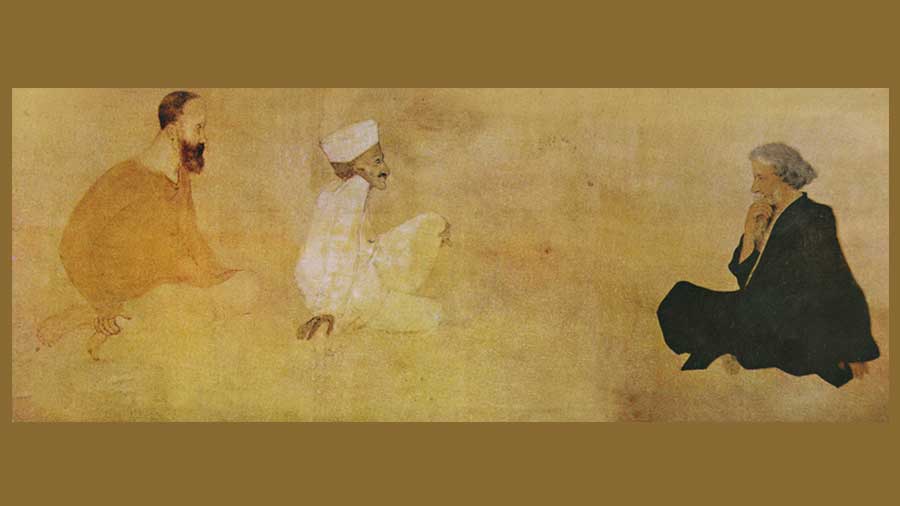
Your last letter gives wonderful news about our students in Calcutta. I hope that this spirit of sacrifice and willingness to suffer will grow in strength; for to achieve this is an end in itself. This is the true freedom! Nothing is of higher value be it national wealth, or independence, than disinterested faith in ideals, in the moral greatness of man. The West has its unshakable faith in material strength and prosperity; and therefore however loud grows the cry for peace and disarmament, its ferocity grows louder, gnashing its teeth and lashing its tail in impatience. It is like a fish, hurt by the pressure of the flood, planning to fly in the air. Certainly the idea is brilliant, but it is not possible for a fish to realize.
We, in India, shall have to show to the world, what is that truth, which not only makes disarmament possible but turns it into strength. That moral force is a higher power than brute force, will be proved by the people who are unarmed. Life, in its higher development, has thrown off its tremendous burden of armour and a prodigious quantity of flesh; till man has become the conqueror of the brute world. The day is sure to come, when the frail man of spirit, completely unhampered by arms and air fleets, and dreadnoughts will prove that the meek is to inherit the earth. It is in the fitness of things, that Mahatma Gandhi, frail in body and devoid of all material resources, should call up the immense power of the meek, that has been lying waiting in the heart of the destitute and insulted humanity of India. The destiny of India has chosen for its ally, Narayan, and not the Narayansena—the power of soul and not that of muscle. And she is to raise the history of man, from the muddy level of physical conflict to the higher moral altitude. What is swaraj! It is maya, it is like a mist, that will vanish leaving no stain on the radiance of the Eternal. However we may delude ourselves with the phrases learnt from the West, Swaraj is not our objective.
The destiny of India has chosen for its ally, Narayan, and not the Narayansena—the power of soul and not that of muscle. And she is to raise the history of man, from the muddy level of physical conflict to the higher moral altitude. What is swaraj! It is maya, it is like a mist, that will vanish leaving no stain on the radiance of the Eternal. However we may delude ourselves with the phrases learnt from the West, Swaraj is not our objective.
Our fight is a spiritual fight, it is for Man. We are to emancipate Man from the meshes that he himself has woven round him,—these organisations of National Egoism. The butterfly will have to be persuaded that the freedom of the sky is of higher value than the shelter of the cocoon. If we can defy the strong, the armed, the wealthy, revealing to the world power of the immortal spirit, the whole castle of the Giant Flesh will vanish in the void. And then Man will find his Swaraj. We, the famished, ragged ragamuffins of the East, are to win freedom for all Humanity. We have no word for Nation in our language. When we borrow this word from other people, it never fits us. For we are to make our league with Narayan, and our victory will not give us anything but victory itself; victory for God’s world. I have seen the West; I covet not the unholy feast, in which she revels every moment, growing more and more bloated and red and dangerously delirious. Not for us, is this mad orgy of midnight, with lighted torches, but awakenment in the serene light of morning.
Lately I have been receiving more and more news and newspaper cuttings from India, giving rise in my mind to a painful struggle that presages a period of suffering which is waiting for me. I am striving with all my power to tune my mood of mind to be in accord with the great feeling of excitement sweeping across my country. But deep in my being why is there this spirit of resistance maintaining its place in spite of my strong desire to remove it? I fail to find a clear answer and through my gloom of dejection breaks out a smile and a voice saying, “Your place is on the seashore of worlds with children; there is your peace, and I am with you there.”
And this is why lately I have been playing with inventing new metres. These are merest nothings that are content to be borne away by the current of time, dancing in the sun and laughing as they disappear. But while I play the whole creation is amused, for are not flowers and leaves never ending experiments in metre? Is not my God an eternal waster of time? He flings stars and planets in the whirlwind of changes, he floats paper boats of ages, filled with his fancies, on the rushing stream of appearance. When I tease him and beg him to allow me to remain his little follower and accept a few trifles of mine as the cargo of his playboat he smiles and I trot behind him catching the hem of his robe.
But where am I among the crowd, pushed from behind, pressed from all sides? And what is this noise about me? If it is a song, then my own sitar can catch the time and I join in the chorus, for I am a singer. But if it is a shout, then my voice is wrecked and I am lost in bewilderment. I have been trying all these days to find in it a melody, straining my ear, but the idea of non-cooperation with its mighty volume of sound does not sing to me, its congregated menace of negations shouts. And I say to myself, “If you cannot keep step with your countrymen at this great Crisis of their history, never say that you are right and the rest of them wrong; only give up your role as a soldier, go back to your corner as a poet, be ready to accept popular derision and disgrace”.
I have been trying all these days to find in it a melody, straining my ear, but the idea of non-cooperation with its mighty volume of sound does not sing to me, its congregated menace of negations shouts. And I say to myself, “If you cannot keep step with your countrymen at this great Crisis of their history, never say that you are right and the rest of them wrong; only give up your role as a soldier, go back to your corner as a poet, be ready to accept popular derision and disgrace”.
R, in support of the present movement, has often said to me that passion for rejection is a stronger power in the beginning than the acceptance of an ideal. Though I know it to be a fact, I cannot take it as a truth. We must choose our allies once for all, for they stick to us even when we would be glad to be rid of them. If we once claim strength from intoxication, then in the time of reaction our normal strength is bankrupt, and we go back again and again to the demon who lends us resources in a vessel whose bottom it takes away.
Brahma-vidya (the cult of Brahma, the Infinite Being) in India has for its object mukti, emancipation, while Buddhism has nirvana, extinction. It may be argued that both have the same idea in different names. But names represent attitudes of mind, emphasise particular aspects of truth. Mukti draws our attention to the positive, and nirvana to the negative side of truth.
Buddha kept silence all through his teachings about the truth of the Om, the everlasting yes, his implication being that by the negative path of destroying the self we naturally reach that truth. Therefore he emphasised the fact of dukkha (misery) which had to be avoided and the Brahma-vidya emphasised the fact of ananda, joy, which had to be attained. The latter cult also needs for its fulfillment the discipline of self-abnegation, but it holds before its view the idea of Brahma, not only at the end but all through the process of realisation. Therefore, the idea of life’s training was different in the Vedic period from that of the Buddhistic. In the former it was the purification of life’s joy, in the latter it was the eradication of it. The abnormal type of asceticism to which Buddhism gave rise in India revelled in celibacy and mutilation of life in all different forms. But the forest life of the Brahmana was not antagonistic to the social life of man, but harmonious with it. It was like our musical instrument tambura whose duty is to supply the fundamental notes to the music to save it from straying into discordance. It believed in anandam, the music of the soul, and its own simplicity was not to kill it but to guide it.
The idea of non-cooperation is political asceticism. Our students are bringing their offering of sacrifices to what? Not to a fuller education but to non-education. It has at its back a fierce joy of annihilation which at best is asceticism, and at its worst is that orgy of frightfulness in which the human nature, losing faith in the basic reality of normal life, finds a disinterested delight in an unmeaning devastation as has been shown in the late war and on other occasions which came nearer to us. No, in its passive moral form is asceticism and in its active moral form is violence. The desert is as much a form of a himsa (malignance) as is the raging sea in storms, they both are against life.
The idea of non-cooperation is political asceticism. Our students are bringing their offering of sacrifices to what? Not to a fuller education but to non-education. It has at its back a fierce joy of annihilation which at best is asceticism, and at its worst is that orgy of frightfulness in which the human nature, losing faith in the basic reality of normal life, finds a disinterested delight in an unmeaning devastation as has been shown in the late war and on other occasions which came nearer to us. No, in its passive moral form is asceticism and in its active moral form is violence. The desert is as much a form of a himsa (malignance) as is the raging sea in storms, they both are against life.
I remember the day, during the swadeshi movement in Bengal, when a crowd of young students came to see me in the first floor hall of our Vichitra House. They said to me that if I would order them to leave their schools and colleges they would instantly obey. I was emphatic in my refusal to do so, and they went away angry, doubting the sincerity of my love for my motherland. And yet long before this popular ebullition of excitement I myself had given a thousand rupees, when I had not five rupees to call my own, to open a swadeshi store and courted banter and bankruptcy. The reason of my refusing to advise those students to leave their schools was because the anarchy of a mere emptiness never tempts me, even when it is resorted to as a temporary measure. I am frightened of an abstraction which is ready to ignore living reality. These students were no more phantoms to me; their life was a great fact to them and to the All. I could not lightly take upon myself the tremendous responsibility of a mere negative programme for them which would uproot their life from its soil, however thin and poor that soil might be.
The great injury and injustice which had been done to those boys who were tempted away from their career before any real provision was made, could never be made good to them. Of course that is nothing from the point of view of an abstraction which can ignore the infinite value even of the smallest fraction of reality. I wish I were the little creature Jack whose one mission is to kill the giant abstraction which is claiming the sacrifice of individuals all over the world under highly painted masks of delusion.
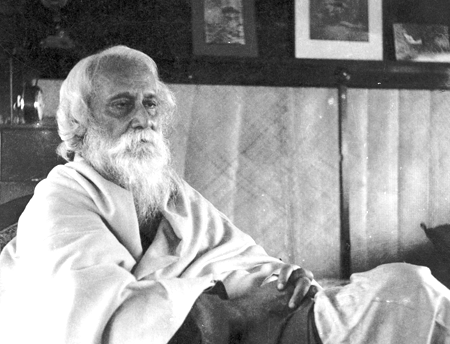
I say again and again that I am a poet, that I am not a fighter by nature. I would give everything to be one with my surroundings. I love my fellow beings and I prize their love. Yet I have been chosen by destiny to ply my boat there where the current is against me. What irony of fate is this that I should be preaching cooperation of cultures between East and West on this side of the sea just at the moment when the doctrine of non-cooperation is preached on the other side?
You know that I do not believe in the material civilisation of the West just as I do not believe in the physical body to be the highest truth in man. But I still less believe in the destruction of the physical body, and the ignoring of the material necessities of life. What is needed is establishment of harmony between the physical and spiritual nature of man, maintaining of balance between the foundation and superstructure. I believe in the true meeting of the East and the West. Love is the ultimate truth of soul. We should do all we can, not to outrage that truth, to carry its banner against all opposition. The idea of non-cooperation unnecessarily hurts that truth. It is not our heart fire but the fire that burns out our hearth and home.
What is needed is establishment of harmony between the physical and spiritual nature of man, maintaining of balance between the foundation and superstructure. I believe in the true meeting of the East and the West. Love is the ultimate truth of soul. We should do all we can, not to outrage that truth, to carry its banner against all opposition. The idea of non-cooperation unnecessarily hurts that truth. It is not our heart fire but the fire that burns out our hearth and home.
Things that are stationary have no responsibility and need no law. For death, even the tombstone is a useless luxury. But for a world, which is an ever-moving multitude advancing towards an idea, all its laws must have one principle of harmony. This is the law of creation.
Man became great when he found out this law for himself, the law of co-operation. It helped him to move together, to utilise the rhythm and impetus of the world march. He at once felt that this moving together was not mechanical, not an external regulation for the sake of some convenience. It was what the metre is in poetry, which is not a mere system of enclosure for keeping ideas from running away in disorder, but for vitalising them, making them indivisible in a unity of creation.
So far this idea of co-operation has developed itself into individual communities within the boundaries of which peace has been maintained and varied wealth of life produced. But outside these boundaries the law of co-operation has not been realised. Consequently the great world of man is suffering from ceaseless discordance. We are beginning to discover that our problem is world-wide and no one people of the earth can work out its salvation by detaching itself from the others. Either we shall be saved together, or drawn together into destruction.
This truth has ever been recognised by all the great personalities of the world. They had in themselves the perfect consciousness of the undivided spirit of man. Their teachings were against tribal exclusiveness, and thus we find that Buddha’s India transcended geographical India and Christ’s religion broke through the bonds of Judaism.
Today, at this critical moment of the world’s history cannot India rise above her limitations and offer the great ideal to the world that will work towards harmony and co-operation between the different peoples of the earth! Men of feeble faith will say that India requires being strong and rich before she can raise her voice for the sake of the whole world. But I refuse to believe it. That the measure of man’s greatness is in his material resources is a gigantic illusion casting its shadow over the present day world, it is an insult to man. It lies in the power of the materially weak to save the world from this illusion and India, in spite of her penury and humiliation, can afford to come to the rescue of humanity.
Today, at this critical moment of the world’s history cannot India rise above her limitations and offer the great ideal to the world that will work towards harmony and co-operation between the different peoples of the earth! Men of feeble faith will say that India requires being strong and rich before she can raise her voice for the sake of the whole world. But I refuse to believe it. That the measure of man’s greatness is in his material resources is a gigantic illusion casting its shadow over the present day world, it is an insult to man. It lies in the power of the materially weak to save the world from this illusion and India, in spite of her penury and humiliation, can afford to come to the rescue of humanity.
The freedom of unrestrained egoism in the individual is licence and not true freedom. For his truth is in that which is universal in him. Individual human races also attain true freedom when they have the freedom of perfect revelation of Man and not that of their aggressive racial egoism. The idea of freedom which prevails in modern civilisation is superficial and materialistic. Our revolution in India will be a true one when its forces will be directed against this crude idea of liberty.
The sunlight of love has the freedom that ripens the wisdom of immortal life, but passions’ fire can only forge fetters for ourselves. The spiritual Man has been struggling for its emergence into perfection, and all true cry of freedom is for this emancipation. Erecting barricades of fierce separateness in the name of national necessity is offering hindrance to it, therefore in the long run building a prison for the nation itself. For the only path of deliverance for nations is in the ideal humanity.
Creation is an endless activity of God’s freedom; it is an end in itself. Freedom is true when it is a revelation of truth. Man’s freedom is for the revelation of the truth of Man which is struggling to express itself. We have not yet fully realised it. But those people who have faith in its greatness, who acknowledge its sovereignty, and have the instinctive urging in their heart to break down obstructions, are paving the way for its coming.
India ever has nourished faith in the truth of spiritual man for whose realisation she has made innumerable experiments, sacrifices and penance, some verging on the grotesque and the abnormal. But the fact is, she has never ceased in her attempt to find it even though at the tremendous cost of material success.
Therefore I feel that the true India is an idea and not a mere geographical fact. I have come into touch with this idea in far away places of Europe and my loyalty was drawn to it in persons who belonged to different countries from mine. India will be victorious when this idea wins victory,—the idea of ‘Purusham mahantam aditya-varnam tamasah parastat’, the Infinite Personality whose light reveals itself through the obstruction of darkness. Our fight is against this darkness, our object is the revealment of the light of this Infinite Personality in ourselves. This Infinite Personality of man is not to be achieved in single individuals, but in one grand harmony of all human races. The darkness of egoism which will have to be destroyed is the egoism of the People. The idea of India is against the intense consciousness of the separateness of one’s own people from others, and which inevitably leads to ceaseless conflicts. Therefore my one prayer is: let India stand for the cooperation of all peoples of the world. The spirit of rejection finds its support in the consciousness of separateness, the spirit of acceptance in the consciousness of unity.
India has ever declared that Unity is Truth, and separateness is maya. This unity is not a zero, it is that which comprehends all and therefore can never be reached through the path of negation. Our present struggle to alienate our heart and mind from those of the West is an attempt at spiritual suicide. If in the spirit of national vain-gloriousness we shout from our house-tops that the West has produced nothing that has an infinite value for man, then we but create a serious cause of doubt about the worth of any product of the Eastern mind. For it is the mind of Man in the East and West which is ever approaching Truth in her different aspects from different angles of vision; and if it can be true that the standpoint of the West has betrayed it into an utter misdirection, then we can never be sure of the standpoint of the East. Let us be rid of all false pride and rejoice at any lamp being lit at any corner of the world, knowing that it is a part of the common illumination of our house.
India has ever declared that Unity is Truth, and separateness is maya. This unity is not a zero, it is that which comprehends all and therefore can never be reached through the path of negation. Our present struggle to alienate our heart and mind from those of the West is an attempt at spiritual suicide. If in the spirit of national vain-gloriousness we shout from our house-tops that the West has produced nothing that has an infinite value for man, then we but create a serious cause of doubt about the worth of any product of the Eastern mind. For it is the mind of Man in the East and West which is ever approaching Truth in her different aspects from different angles of vision; and if it can be true that the standpoint of the West has betrayed it into an utter misdirection, then we can never be sure of the standpoint of the East. Let us be rid of all false pride and rejoice at any lamp being lit at any corner of the world, knowing that it is a part of the common illumination of our house.
The other day I was invited to the house of a distinguished art critic of America who is a great admirer of old Italian art. I questioned him if he knew anything of our Indian pictures and brusquely said that most probably he would “hate them”. I suspected he had seen some of them and hated them. In retaliation I could have said something in the same language about the Western art. But I am proud to say it was not possible for me. For I always try to understand the Western art and never to hate it. Whatever we understand and enjoy in human products instantly becomes ours wherever they might have their origin. I should feel proud of my humanity when I can acknowledge the poets and artists of other countries as mine own. Let me feel with unalloyed gladness that all the great glories of man are mine.
Therefore, it hurts me deeply when the cry of rejection rings loud against the West in my country with the clamour that the Western education can only injure us. It cannot be true. What has caused the mischief is the fact that for a long time we have been out of touch with our own culture and therefore the Western culture has not found its prospective in our life very often found a wrong prospective giving our mental eye a squint. When we have the intellectual capital of our own, the commerce of thought with the outer world becomes natural and fully profitable. But to say that such commerce is inherently wrong, is to encourage the worst form of provincialism, productive of nothing but intellectual indigence. The West has misunderstood the East which is at the root of the disharmony that prevails between them, but will it mend the matter if the East in her turn tries to misunderstand the West? The present age has powerfully been possessed by the West; it has only become possible because to her is given some great mission for man. We from the East have to come to her to learn whatever she has to teach us; for by doing so we hasten the fulfillment of this age. We know that the East also has her lessons to give and she has her own responsibility of not allowing her light to be extinguished, and the time will come when the West will find leisure to realise that she has a home of hers in the East where her food is and her rest.
(Gandhi’s Young India of 1 June 1921, carried a reply to the Poet’s musings, under the heading ‘English Learning’)
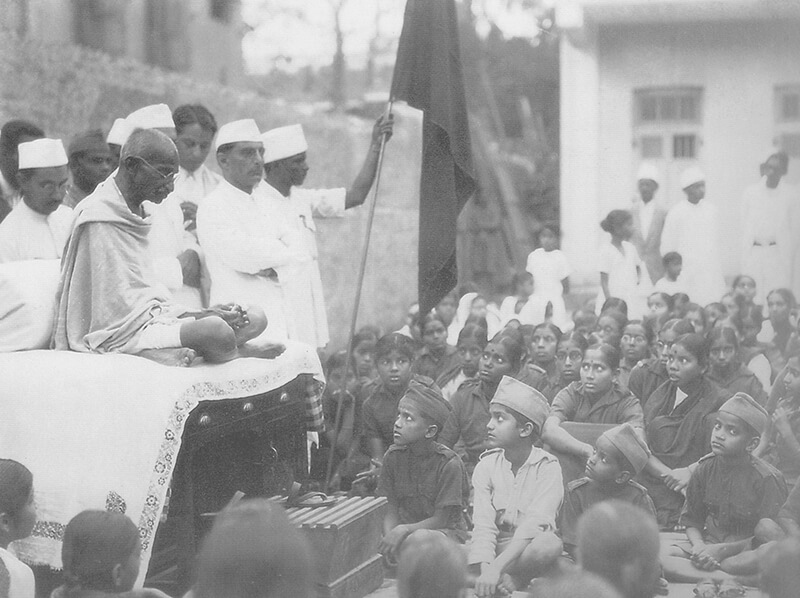
Elsewhere the reader will see my humble endeavour in reply to Dr. Tagore’s criticism of Non-cooperation. I have since read his letter to the Manager of Santiniketan. I am sorry to observe that the letter is written in anger and in ignorance of facts. The Poet was naturally incensed to find that certain students in London would not give a hearing to Mr. Pearson, one of the truest of Englishmen, and he became equally incensed to learn that I had told our women to stop English studies. The reasons for my advice, the Poet evidently inferred for himself.
How much better it would have been, if he had not imputed the rudeness of the students to Non-cooperation, and had remembered that Non-cooperators worship Andrews, honour Stokes, and gave a most respectful hearing to Messrs. Wedgwood Benn, Spoor and Holford Knight at Nagpur, that Maulana Mahomed Ali accepted the invitation to tea of an English official when he invited him as a friend, that Hakim Ajmalkhan, a staunch Non-cooperator, had the portraits of Lord and Lady Hardinge unveiled in his Tibbia College and had invited his many English friends to witness the ceremony. How much better it would have been, if he had refused to allow the demon doubt to possess him for one moment, as to the real and religious character of the present movement, and had believed that the movement was altering the meaning of old terms, nationalism and patriotism, and extending their scope.
If he, with a poet’s imagination, had seen that I was incapable of wishing to cramp the mind of the Indian women, and I could not object to English learning as such, and recalled the fact that throughout my life I had fought for the fullest liberty for women, he would have been saved the injustice which he has done me, and which, I know, he would never knowingly do to an avowed enemy.
The Poet does not know perhaps that English is today studied because of its commercial and so-called political value. Our boys think, and rightly in the present circumstances, that without English they cannot get Government service. Girls are taught English as a passport to marriage. I know several instances of women wanting to learn English so that they may be able to talk to Englishmen in English. I know husbands who are sorry that their wives cannot talk to them and their friends in English. I know families in which English is being made the mother tongue. Hundreds of youths believe that without a knowledge of English freedom for India is practically impossible. The canker has so eaten into the society that, in many cases, the only meaning of Education is a knowledge of English.
All these are for me signs of our slavery and degradation. It is unbearable to me that the vernaculars should be crushed and starved as they have been. I cannot tolerate the idea of parents writing to their children, or husbands writing to their wives, not in their own vernaculars, but in English. I hope I am as great a believer in free air as the great Poet. I do not want my house to be walled in on all sides and my windows to be stuffed.
I want the cultures of all the lands to be blown about my house as freely as possible. But I refuse to be blown off my feet by any. I refuse to live in other people’s houses as an interloper, a beggar or a slave. I refuse to put the unnecessary strain of learning English upon my sisters for the sake of false pride or questionable social advantage. I would have our young men and young women with literary tastes to learn as much of English and other world-languages as they like, and then expect them to give the benefits of their learning to India and to the world, like a Bose, a Roy or the Poet himself.
I want the cultures of all the lands to be blown about my house as freely as possible. But I refuse to be blown off my feet by any. I refuse to live in other people’s houses as an interloper, a beggar or a slave. I refuse to put the unnecessary strain of learning English upon my sisters for the sake of false pride or questionable social advantage. I would have our young men and young women with literary tastes to learn as much of English and other world-languages as they like, and then expect them to give the benefits of their learning to India and to the world, like a Bose, a Roy or the Poet himself.
But I would not have a single Indian to forget, neglect or be ashamed of his mother-tongue, or to feel that he or she cannot think or express the best thoughts in his or her own vernacular. Mine is not a religion of the prison house. It has room for the least among God’s creation. But it is proof against insolence, pride of race, religion or colour. I am extremely sorry for the Poet’s misreading of this great movement or reformation, purification and patriotism spelt humanity. If he will be patient, he will find no cause for sorrow or shame for his countrymen. I respectfully warn him against mistaking its excrescences for the movement itself. It is as wrong to judge Non-cooperation by the students’ misconduct in London or Malegaon’s in India, as it would be to judge Englishmen by the Dyers or the O’Dwyers.
(Young India of 1 June 1921 also carried another reply to Tagore from Gandhi on cooperation and non-cooperation vis-a-vis the students.)
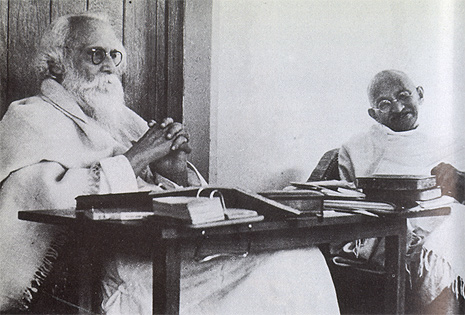
The Poet of Asia, as Lord Hardinge called Dr. Tagore, is fast becoming, if he has not already become, the Poet of the world. Increasing prestige has brought to him increasing responsibility. His greatest service to India must be his poetic interpretation of India’s message to the world. The Poet is, therefore, sincerely anxious that India should deliver no false or feeble message in her name. He is naturally jealous of his country’s reputation. He says he has striven hard to find himself in tune with the present movement. He confesses that he is baffled. He can find nothing for his lyre in the din and the bustle of Non-cooperation. In three forceful letters, he has endeavoured to give expression to his misgivings, and he has come to the conclusion that Non-cooperation is not dignified enough for the India of his vision, that it is a doctrine of negation and despair. He fears that it is a doctrine of separation, exclusiveness, narrowness and negation.
No Indian can feel anything but pride in the Poet’s exquisite jealousy of India’s honour. It is good that he should have sent to us his misgivings in language at once beautiful and clear.
In all humility, I shall endeavour to answer the Poet’s doubts. I may fail to convince him or the reader who may have been touched by his eloquence, but I would like to assure him and India that Non-cooperation in conception is not any of the things he fears, and he need have no cause to be ashamed of his country for having adopted Non-cooperation. If, in actual application, it appears in the end to have failed, it will be no more the fault of the doctrine, than it would be of Truth, if those who claim to apply it in practice do not appear to succeed. Non-cooperation may have come in advance of its time. India and the world must then wait, but there is no choice for India save between violence and Non-cooperation.
Nor need the Poet fear that Non-cooperation is intended to erect a Chinese wail between India and the West. On the contrary, Non-cooperation is intended to pave the way to real, honourable and voluntary co-operation based on mutual respect and trust.
The present struggle is being waged against compulsory cooperation, against one-sided combination, against the armed imposition of modern methods of exploitation, masquerading under the name of civilisation.
Non-cooperation is a protest against an unwitting and unwilling participation in evil.
Non-cooperation is intended to pave the way to real, honourable and voluntary co-operation based on mutual respect and trust. The present struggle is being waged against compulsory cooperation, against one-sided combination, against the armed imposition of modern methods of exploitation, masquerading under the name of civilisation. Non-cooperation is a protest against an unwitting and unwilling participation in evil.
The Poet’s concern is largely about the students. He is of the opinion that they should not have been called upon to give up Government schools before they had other schools to go to. Here I must differ from him. I have never been able to make a fetish of literary training. My experience has proved to my satisfaction that literary training by itself adds not an inch to one’s moral height and that character-building is independent of literary training. I am firmly of the opinion that the Government schools have unmanned us; rendered us helpless and Godless. They have filled us with discontent, and providing no remedy for the discontent, have made us despondent. They have made us what we were intended to become — clerks and interpreters. A Government builds its prestige upon the apparently voluntary association of the governed. And if it was wrong to cooperate with the Government in keeping us slaves, we were bound to begin with those institutions in which our association appeared to be most voluntary. The youth of a nation are its hope. I hold that, as soon as we discovered that the system of Government was wholly, or mainly evil, it became sinful for us to associate our children with it.
It is no argument against the soundness of the proposition laid down by me that the vast majority of the students went back after the first flush of enthusiasm. Their recantation is proof rather of the extent of our degradation than of the wrongness of the step. Experience has shown that the establishment of national schools has not resulted in drawing many more students. The strongest and the truest of them came out without any national schools to fall back upon, and I am convinced that these first withdrawals are rendering service of the highest order.
But the Poet’s protest against the calling out of the boys is really a corollary to his objection to the very doctrine of Non-cooperation. He has a horror of everything negative. His whole soul seems to rebel against the negative commandments of religion. I must give his objection in his own inimitable language.
“R, in support of the present movement has often said to me that passion for rejection is a stronger power in the beginning than the acceptance of an ideal. Though I know it to be a fact, I cannot take it as a truth… Brahma-vidya in India has for its object mukti (emancipation), while Buddhism has nirvana (extinction), negative side of truth… Therefore, he (Buddha) emphasised the fact of dukkha (misery) which had to be avoided and the Brahma-vidya emphasised the fact of anand (joy) which had to be attained.” In these and kindred passages, the reader will find the key to the Poet’s mentality. In my humble opinion, rejection is as much an ideal as the acceptance of a thing. It is as necessary to reject untruth as it is to accept truth. All religions teach that two opposite forces act upon us and that the human endeavour consists in a series of eternal rejections and acceptances. Non- cooperation with evil is as much a duty as co-operation with good. I venture to suggest that the Poet has done an unconscious injustice to Buddhism in describing nirvana as merely a negative state. I make bold to say that mukti (emancipation) is as much a negative state as nirvana. Emancipation from or extinction of the bondage of the flesh leads to ananda (eternal bliss). Let me close this part of my argument by drawing attention to the fact that the final word of the Upanishads (Brahma-vidya) is Not. Neti was the best description the authors of the Upanishads were able to find for Brahma.
In my humble opinion, rejection is as much an ideal as the acceptance of a thing. It is as necessary to reject untruth as it is to accept truth. All religions teach that two opposite forces act upon us and that the human endeavour consists in a series of eternal rejections and acceptances. Non- cooperation with evil is as much a duty as co-operation with good. I venture to suggest that the Poet has done an unconscious injustice to Buddhism in describing nirvana as merely a negative state. I make bold to say that mukti (emancipation) is as much a negative state as nirvana. Emancipation from or extinction of the bondage of the flesh leads to ananda (eternal bliss). Let me close this part of my argument by drawing attention to the fact that the final word of the Upanishads (Brahma-vidya) is Not. Neti was the best description the authors of the Upanishads were able to find for Brahma.
I, therefore, think that the Poet has been unnecessarily alarmed at the negative aspect of Non-cooperation. We had lost the power of saying ‘no’. It had become disloyal, almost sacrilegious to say ‘no’ to the Government. This deliberate refusal to cooperate is like the necessary weeding process that a cultivator has to resort before he sows. Weeding is as necessary to agriculture as sowing. Indeed, even whilst the crops are growing, the weeding fork, as every husbandman knows, is an instrument almost of daily use. The nation’s Non-cooperation is an invitation to the Government to co-operate with it on its own terms as is every nation’s right and every good government’s duty. Non-cooperation is the nation’s notice that it is no longer satisfied to be in tutelage. The nation had taken to the harmless (for it), natural and religious doctrine of Non-cooperation in the place of the unnatural and irreligious doctrine of violence. And if India is ever to attain the swaraj of the Poet’s dream, she will do so only by Non-violent Non-cooperation. Let him deliver his message of peace to the world, and feel confident that India, through her Non- cooperation, if she remains true to her pledge, will have exemplified his message. Non-cooperation is intended to give the very meaning to patriotism that the Poet is yearning after. An India prostrate at the feet of Europe can give no hope to humanity. An India awakened and free has a message of peace and goodwill to a groaning world. Non-cooperation is designed to supply her with a platform from which she will preach the message.
…if India is ever to attain the swaraj of the Poet’s dream, she will do so only by Non-violent Non-cooperation. Let him deliver his message of peace to the world, and feel confident that India, through her Non- cooperation, if she remains true to her pledge, will have exemplified his message. Non-cooperation is intended to give the very meaning to patriotism that the Poet is yearning after. An India prostrate at the feet of Europe can give no hope to humanity. An India awakened and free has a message of peace and goodwill to a groaning world. Non-cooperation is designed to supply her with a platform from which she will preach the message.
(This long rejoinder from Tagore to Gandhi originally appeared in Pravasee in Bengali and later in Modern Review in English. The original is reproduced in Volume XXIV of the Collected Works of Rabindranath Tagore)
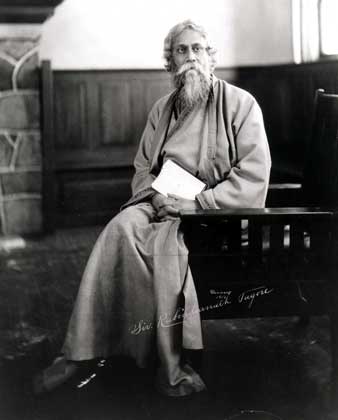
Parasites have to pay for their readymade victuals by losing the power, of assimilating food in natural form. In the history of man, this same sin of laziness has always entailed degeneracy. Man becomes parasitical, not only when he fattens on others’ toil, but also when he becomes rooted to a particular set of outside conditions and allows himself helplessly to drift along the stream of things as they are; for the outside is alien to the inner self, and if the former be made indispensable by sheer habit, man acquires parasitical characteristics, and becomes unable to perform his true function of converting the impossible into the possible.
In this sense all the lower animals are parasites. They are carried along by their environment; they live or die by natural selection; they progress or retrogress as nature may dictate. Their mind has lost the power of growth. The bees, for millions of years, have been unable to get beyond the pattern of their hive. For that reason, the form of their cell has attained certain perfection, but their mentality is confined to the age-long habits of their hive-life and cannot soar out of its limitations. Nature has developed a cautious timidity in the case of her lower types of life; she keeps them tied to her apron strings and has stunted their minds, lest they should stray into dangerous experiments.
But Providence displayed a sudden accession of creative courage when it came to man; for his inner nature has not been tied down, though outwardly the poor human creature has been left naked, weak and defenceless. In spite of these disabilities, man in the joy of his inward freedom has stood up and declared: “I shall achieve the impossible”. That is to say, he has consistently refused to submit to the rule of things as they always have been, but is determined to bring about happenings that have never been before. So when, in the beginning of his history, man’s lot was thrown in with monstrous creatures, tusked and taloned, he did not, like the deer, simply take refuge in flight, nor, like the tortoise, take refuge in biding, but set to work with flints to make even more efficient weapons. These, moreover, being the creation of his own inner faculties, were not dependent on natural selection, as were those of the other animals, for their developments. And so man’s instruments progressed from flint to steel. This shows that man’s mind has never been helplessly attached to his environment. What came to his hand was brought under his thumb. Not content with the flint on the surface, he delved for the iron beneath. Not satisfied with the easier process of chipping flints, he proceeded to melt iron ore and hammer it into shape. That which resisted more stubbornly was converted into a better ally. Man’s inner nature not only finds success in its activity, but there it also has its joy. He insists on penetrating further and further into the depths, from the obvious to the hidden, from the easy to the difficult, from parasitism to self-determination, from the slavery of his passions to the mastery of himself. That is how he has won.
But if any section of mankind should say, “The flint was the weapon of our revered forefathers; by departing from it we destroy the spirit of the race”, then they may succeed in preserving what they call their race, but they strike at the root of the glorious tradition of humanity which was theirs also. And we find that those, who have steadfastly stuck to their flints, may indeed have kept safe their pristine purity to their own satisfaction, but they have been out casted by the rest of mankind, and so have to pass their lives slinking away in jungle and cave. They are, as I say, reduced to a parasitic dependence on outside nature, driven along blindfold by the force of things as they are. They have not achieved swaraj in their inner nature, and so are deprived of swaraj in the outside world as well. They have ceased to be even aware, that it is man’s true function to make the impossible into the possible by dint of his own powers; that it is not for him to be confined merely to what has happened before; that he must progress towards what ought to be by rousing all his inner powers by means of the force of his soul.
Thirty years ago I used to edit the Sadhana magazine and there I tried to say this same thing. Then English-educated India was frightfully busy begging for its rights. And I repeatedly endeavoured to impress on my countrymen, that man is not under any necessity to beg for rights from others, but must create them for himself; because man lives mainly by his inner nature, and there he is the master. By dependence on acquisition from the outside, man’s inner nature suffers loss. And it was my contention, that man is not so hard oppressed by being deprived of his outward rights as he is by the constant bearing of the burden of prayers and petitions.
Then when the Bangadarshan magazine came into my hands, Bengal was beside herself at the sound of the sharpening of the knife for her partition. The boycott of Manchester, which was the outcome of her distress, had raised the profits of the Bombay mill-owners to a super-foreign degree. And I had then to say: “This will not do, either; for it is also of the outside. Your main motive is hatred of the foreigner, not love of country.” It was then really necessary for our countrymen to be made conscious of the distinction, that the Englishman’s presence is an external accident, mere maya but that the presence of our country is an internal fact which is also an eternal truth. Maya looms with an exaggerated importance, only when we fix our attention exclusively upon it, by reason of some infatuation—be it of love or of hate. Whether in our passion we rush to embrace it, or attack it; whether we yearn for it, or spurn it; it equally fills the whole field of our blood-shot vision.
Maya is like the darkness. No steed, however swift, can carry us beyond it; no amount of water can wash it away. Truth is like a lamp; even as it is lit, maya vanishes. Our shastras tell us that Truth, even when it is small, can rescue us from the terror which is great. Fear is the atheism of the heart. It cannot be overcome from the side of negation. If one of its heads be struck off, it breeds like the monster of the fable, a hundred others. Truth is positive; it is the affirmation of the soul. If even a little of it be roused, it attacks negation at the very heart and overpowers it wholly.
Maya is like the darkness. No steed, however swift, can carry us beyond it; no amount of water can wash it away. Truth is like a lamp; even as it is lit, maya vanishes. Our shastras tell us that Truth, even when it is small, can rescue us from the terror which is great. Fear is the atheism of the heart. It cannot be overcome from the side of negation. If one of its heads be struck off, it breeds like the monster of the fable, a hundred others. Truth is positive; it is the affirmation of the soul. If even a little of it be roused, it attacks negation at the very heart and overpowers it wholly.
Alien government in India is a veritable chameleon. Today it comes in the guise of the Englishman; tomorrow perhaps as some other foreigner; the next day, without abating a jot of its virulence, it may take the shape of our own countrymen. However determinedly we may try to hunt this monster of foreign dependence with outside lethal weapons, it will always elude our pursuit by changing its skin, or its colour. But if we can gain within us the truth called our country, all outward maya will vanish of itself. The declaration of faith that my country is there, to be realised, has to be attained by each one of us. The idea that our country is ours, merely because we have been born in it, can only be held by those who are fastened, in a parasitic existence, upon the outside world. But the true nature of man is his inner nature, with its inherent powers. Therefore, that only can be a man’s true country, which he can help to create by his wisdom and will, his love and his actions. So in 1905, I called upon my countrymen to create their country by putting forth their own powers from within. For the act of creation itself is the realization of truth.
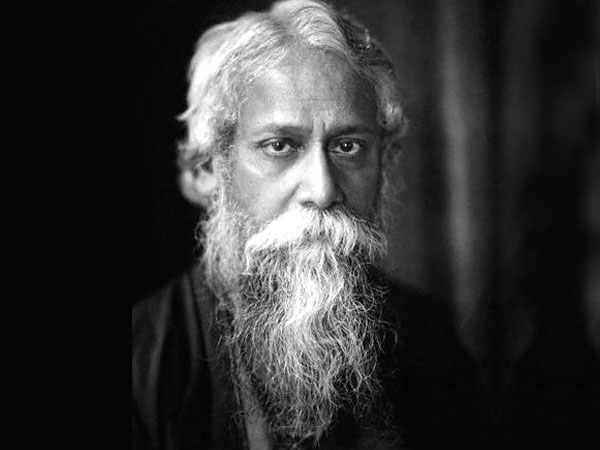
The Creator gains Himself in His universe. To gain one’s own country means to realize one’s own soul more fully expanded within it. This can only be done when we are engaged in building it up with our service, our ideas and our activities. Man’s country being the creation of his own inner nature, when his soul thus expands within it, it is more truly expressed, more fully realised. In my paper called Swadeshi Samaj, written in 1905, I discussed at length the ways and means by which we could make the country of our birth more fully our own. Whatever may have been the shortcomings of my words then uttered, I did not fail to lay emphasis on the truth, that we must win our country, not from some foreigner, but from our own inertia, our own indifference. Whatever be the nature of the boons we may be seeking for our country at the door it only makes our inertia more densely inert. Any public benefit done by the alien Government goes to their credit not to ours. So whatever outside advantage such public benefit might mean for us, our country will only get more and more completely lost to us thereby. That is to say, we shall have to pay out in soul value for what we purchase as material advantage. The Rishi has said: “The son is dear, not because we desire a son, but because we desire to realize our own soul in him.” It is the same with our country. It is dear to us, because it is the expression of our own soul. When we realize this, it will become impossible for us to allow our service of our country to wait on the pleasure of others.
These truths, which I then tried to press on my countrymen, were not particularly new, nor was there anything therein which need have grated on their ears; but, whether anyone else remembers it or not, I at least am not likely to forget the storm of indignation which I roused. I am not merely referring to the hooligans of journalism whom it pays to be scurrilous. But even men of credit and courtesy were unable to speak of me in restrained language.
There were two root causes of this. One was anger, the second was greed.
Giving free vent to angry feelings is a species of self-indulgence. In those days there was practically nothing to stand in the way of the spirit of destructive revel, which spread all over the country. We went about picketing, burning, placing thorns in the path of those whose way was not ours, acknowledging to restraints in language or behavior, – all in the frenzy of our wrath. Shortly after it was all over, a Japanese friend asked me: “How is it you people cannot carry on your work with calm and deep determination? This wasting of energy can hardly be of assistance to your object.” I had no help but to reply: “When we have the gaining of the object clearly before our minds, we can be restrained, and concentrate our energies to serve it; but when it is a case of venting our anger, our excitement rises and rises till it drowns the object and then we are spend-thrift to the point of bankruptcy.” However that may be, there were my countrymen encountering, for the time being, no check to the overflow of their outraged feelings. It was like a strange dream. Everything seemed possible. Then all of a sudden it was my misfortune to appear on the scene with my doubts and my attempts to divert the current into the path of self-determination. My only success was in diverting their wrath on to my own devoted head.
“When we have the gaining of the object clearly before our minds, we can be restrained, and concentrate our energies to serve it; but when it is a case of venting our anger, our excitement rises and rises till it drowns the object and then we are spend-thrift to the point of bankruptcy.” However that may be, there were my countrymen encountering, for the time being, no check to the overflow of their outraged feelings. It was like a strange dream. Everything seemed possible. Then all of a sudden it was my misfortune to appear on the scene with my doubts and my attempts to divert the current into the path of self-determination. My only success was in diverting their wrath on to my own devoted head.
Then there was our greed. In history, all people have won valuable things by pursuing difficult paths. We had hit upon the device of getting them cheap, not even through the painful indignity of supplication with folded hands, but by proudly conducting our beggary in threatening tones. The country was in ecstasy at the ingenuity of the trick. It felt like being at a reduced price sale. Everything worth having in the political market was ticketed at half-price. Shabby-genteel mentality is so taken up with low prices that it has no attention to spare for quality and feels inclined to attack anybody who has the hardihood to express doubts in that regard. It is like the man of worldly piety who believes that the judicious expenditure of coin can secure, by favour of the priest, a direct passage to heaven. The dare devil who ventures to suggest that not heaven but dreamland is likely to be his destination must beware of a violent end.
Anyhow, it was the outside maya which was our dream and our ideal in those days. It was a favourite phrase of one of the leaders of the time that we must keep one hand at the feet and the other at the throat of the Englishman, that is to say, with no hand left free for the country! We have since perhaps got rid of this ambiguous attitude. Now we have one party that has both hands raised to the foreigner’s throat, and another party which has both hands down at his feet; but whichever attitude it may be, these methods still appertain to the outside maya. Our unfortunate minds keep revolving round and round the British Government, now to the left, now to the right; our affirmations and denials alike are concerned with the foreigners.
In those days, the stimulus from every side was directed towards the heart of Bengal. But emotion by itself, like fire only consumes its fuel and reduces it to ashes; it has no creative power. The intellect of man must busy itself, with patience, with skill, with foresight, in using this fire to melt that which is hard and difficult into the object of its desire. We neglected to rouse our intellectual forces, and so were unable to make use of this surging emotion of ours to create any organisation of permanent value. The reason of our failure, therefore, was not in anything outside, but rather within us. For a long time past we have been in the habit, in our life and endeavour, of setting apart one place for our emotions and another for our practices. Our intellect has all the time remained dormant, because we have not dared to allow it scope. That is why, when we have to rouse ourselves to action, it is our emotion which has to be requisitioned, and our intellect has to be kept from interfering by the hypnotism of some magical formula,—that is to say we hasten to create a situation absolutely inimical to the free play of our intellect.
The loss which is incurred by this continual deadening of our mind cannot be made good by any other contrivance. In our desperate attempts to do so we have to invoke the magic of maya and our impotence jumps for joy at the prospect of getting hold of Alladin’s lamp. Of course everyone has to admit that there is nothing to beat Alladin’s lamp, its only inconvenience being that it beats one to get hold of. The unfortunate part of it is that the person, whose greed is great, but whose powers are feeble, and who has lost all confidence in his own intellect, simply will not allow himself, to dwell on the difficulties of bespeaking the services of some genie of the lamp. He can only be brought to exert himself at all by holding out the speedy prospect of getting at the wonderful lamp. If anyone attempts to point out the futility of his hopes, he fills the air with wailing and imprecation, as at a robber making away with his all.
In the heat of the enthusiasm of the partition days, a band of youths attempted to bring about the millennium through political revolution. Their offer of themselves as the first sacrifice to the fire which they had lighted makes not only their own country, but other countries as well, bare the head to them in reverence. Their physical failure shines forth as the effulgence of spiritual glory. In the midst of the supreme travail, they realised at length that the way of bloody revolution is not the true way; that where there is no politics, a political revolution is like taking a short cut to nothing; that the wrong way may appear shorter, but it does not reach the goal, and only grievously hurts the feet. The refusal to pay the full price for a thing leads to the loss of the price without the gain of the thing. These impetuous youths offered their lives as the price of their country’s deliverance; to them it meant the loss of their all but alas! the price offered on behalf of the country was insufficient. I feel sure that those of them who still survive must have realised by now, that the country must be the creation of all its people, not of one section alone. It must be the expression of all their forces of heart, mind and will.
This creation can only be the fruit of that yoga, which gives outward form to the inner faculties. Mere political or economical yoga is not enough; for that all the human powers must unite.
When we turn our gaze upon the history of other countries, the political steed comes prominently into view; on it seems to depend wholly the progress of the carriage. We forget that the carriage also must be in a fit condition to move; its wheels must be in agreement with one another and its parts well fitted together; with which not only have fire and hammer and chisel been busy but much thought and skill and energy have also been spent in the process. We have seen some countries which are externally free and independent; when however, the political carriage is in motion, the noise which it makes arouses the whole neighbourhood from slumber and the jolting produces aches and pains in the limbs of the helpless passengers. It comes to pieces in the middle of the road, and it takes the whole day to put it together again with the help of ropes and strings. Yet however loose the screws and however crooked the wheels, still it is a vehicle of some sort after all. But for such a thing as is our country a mere collection of jointed logs, that not only have no wholeness amongst themselves, but are contrary to one another for this to be dragged along a few paces by the temporary pull of some common greed or anger, can never be called by the name of political progress. Therefore, is it not, in our case, wiser to keep for the moment our horse in the stable and begin to manufacture a real carriage?
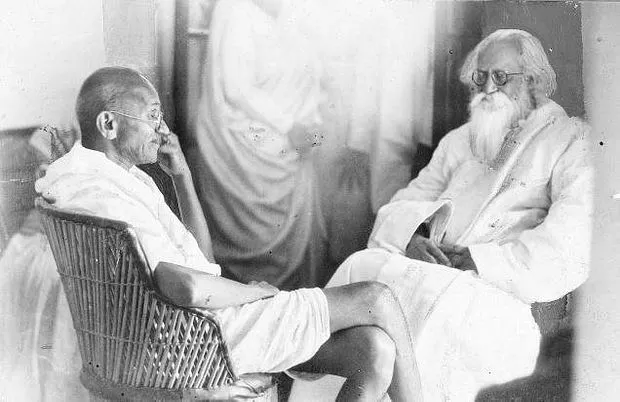
From the writings of the young men, who have come back out of the valley of the shadow of death, I feel sure some such thoughts must have occurred to them. And so they must be realising the necessity of the practice of yoga as of primary importance;—that from which is the union in a common endeavour of all the human faculties. This cannot be attained by any outside blind obedience, but only by the realisation of self in the light of intellect. That which fails to illumine the intellect, and only keeps it in the obsession of some delusion, is its greatest obstacle.
The call to make the country our own by dint of our own creative power, is a great call. It is not merely inducing the people to take up some external mechanical exercise; for man’s life is not in making cells of uniform pattern like the bee, nor in incessant weaving of webs like the spider; his greatest powers are within, and on these are his chief reliance. If by offering some allurement we can induce man to cease from thinking, so that he may go on and on with some mechanical piece of work, this will only result in prolonging the sway of maya, under which our country has all along been languishing. So far, we have been content with surrendering our greatest right—the right to reason and to judge for ourselves—to the blind forces of shastric injunctions and social conventions. We have refused to cross the seas, because Manu has told us not to do so. We refuse to eat with the Mussalman, because prescribed usage is against it. In other words, we have systematically pursued a course of blind routine and habit, in which the mind of man has no place. We have thus been reduced to the helpless condition of the master who is altogether dependent on his servant. The real master, as I have said, is the internal man; and he gets into endless troubles, when he becomes his own servant’s slave—a mere automaton, manufactured in the factory of servitude. He can then only rescue himself from one master by surrendering himself. Similarly, he who glorifies inertia by attributing to it a fanciful purity, becomes, like it, dependent on outside impulses, both for rest and motion. The inertness of mind, which is the basis of all slavery, cannot be got rid of by a docile, submission to being hoodwinked, nor by going through the motions of a wound-up mechanical doll.
So far, we have been content with surrendering our greatest right—the right to reason and to judge for ourselves—to the blind forces of shastric injunctions and social conventions. We have refused to cross the seas, because Manu has told us not to do so. We refuse to eat with the Mussalman, because prescribed usage is against it. In other words, we have systematically pursued a course of blind routine and habit, in which the mind of man has no place. We have thus been reduced to the helpless condition of the master who is altogether dependent on his servant. The real master, as I have said, is the internal man; and he gets into endless troubles, when he becomes his own servant’s slave—a mere automaton, manufactured in the factory of servitude. He can then only rescue himself from one master by surrendering himself.
The movement, which has now succeeded the swadeshi agitation, is ever so much greater and has moreover extended its influence all over India. Previously, the vision of our political leaders had never reached beyond the English-knowing classes, because the country meant for them only that bookish aspect of it which is to be found in the pages of the Englishman’s history. Such a country was merely a mirage born of vapourings in the English language, in which litted about thin shades of Burke and Gladstone, Mazzini and Garibaldi. Nothing resembling self-sacrifice or true feeling for their countrymen was visible. At this juncture, Mahatma Gandhi came and stood at the cottage door of the destitute millions, clad as one of themselves, and talking to them in their own language. Here was the truth at last, not a mere quotation out of a book. So the name of Mahatma, which was given to him, is his true name. Who else has felt so many men of India to be of his own flesh and blood? At the touch of Truth the pent-up forces of the soul are set free. As soon as true love stood at India’s door, it flew open; all hesitation and holding back vanished. Truth awakened truth.
Stratagem in politics is a barren policy—this was a lesson of which we were sorely in need. All honour to the Mahatma, who made visible to us the power of Truth. But reliance on tactics is so ingrained in the cowardly and the weak, that in order to eradicate it, the very skin must be sloughed off. Even today, our worldly-wise men cannot get rid of the idea of utilising the Mahatma at a secret and more ingenious move in their political gamble. With their minds corroded by untruth, they cannot understand what an important thing it is that the Mahatma’s supreme love should have drawn forth the country’s love. The thing that has happened is nothing less than the birth of freedom. It is the gain by the country of itself. In it there is no room for any thought, as to where the Englishman is, or is not. This love is self- expression. It is pure affirmation. It does not argue with negation: it has no need for argument.
Some notes of the music of this wonderful awakening of India by love, floated over to me across the seas. It was a great joy to me to think that the call of this festivity of awakening would come to each one of us; and that the true shakti of India’s spirit, in all its multifarious variety, would at last find expression. This thought came to me because I have always believed that in such a way India would find its freedom. When Lord Buddha voiced forth the truth of compassion for all living creatures, the manhood of India was roused and poured itself forth in science and art and wealth of every kind. True in the matter of political unification the repeated attempts that were then made as often failed; nevertheless India’s mind had awakened into freedom from its submergence in sleep, and its overwhelming force would brook no confinement within the petty limits of country. It overflowed across ocean and desert, scattering its wealth of the spirit over every land that it touched. No commercial or military exploiter, to-day has ever been able to do anything like it. Whatever land these exploiters have touched has been agonised with sorrow and insult, and the fair face of the world has been scarred and disfigured. Why? Because not greed but love is true. When love gives freedom it does so at the very centre of our life. When greed seeks unfettered power, it is forcefully impatient. We saw this during the partition agitation. We then compelled the poor to make sacrifices, not always out of the inwardness of love, but often by outward pressure. That was because greed is always seeking for a particular result within a definite time. But the fruit which love seeks is not of today or tomorrow, or for a time only: it is sufficient unto itself.
No commercial or military exploiter, to-day has ever been able to do anything like it. Whatever land these exploiters have touched has been agonised with sorrow and insult, and the fair face of the world has been scarred and disfigured. Why? Because not greed but love is true. When love gives freedom it does so at the very centre of our life. When greed seeks unfettered power, it is forcefully impatient. We saw this during the partition agitation. We then compelled the poor to make sacrifices, not always out of the inwardness of love, but often by outward pressure. That was because greed is always seeking for a particular result within a definite time. But the fruit which love seeks is not of today or tomorrow, or for a time only: it is sufficient unto itself.
So, in the expectation of breathing the buoyant breezes of this new found freedom, I came home rejoicing. But what I found in Calcutta when I arrived depressed me. An oppressive atmosphere seemed to burden the land. Some outside compulsion seemed to be urging one and all to talk the same strain, to work at the same mill. When I wanted to inquire, to discuss, my well- wishers clapped their hands over my lips, saying: “Not now, not now”. Today, in the atmosphere of the country, there is a spirit of persecution, which is not that of armed force, but something still more alarming, because it is invisible. I found, further, that those who had their doubts as to the present activities, if they happened to whisper them out, however cautiously, however guardedly, felt some admonishing hand clutching them within. There was a newspaper which one day had the temerity to disapprove, in a feeble way, of the burning of cloth. The very next day, the editor was shaken out of his balance by the agitation of his readers. How long would it take for the fire which was burning cloth to reduce his paper to ashes? The sight that met my eye was, on the one hand people immensely busy; on the other, intensely afraid. What I heard on every side was, that reason, and culture as well, must be closured. It was only necessary to cling to an unquestioning obedience. Obedience to whom? To some mantra, some unreasoned creed!
And why this obedience? Here again comes that same greed, our spiritual enemy. There dangles before the country the bait of getting a thing of inestimable value dirt cheap and in double-quick time. It is like the faqir with his goldmaking trick. With such a lure men cast so readily to the winds their independent judgement and wax so mightly wroth with those who will not do likewise. So easy is to overpower, in the name of outside freedom the inner freedom of man. The most deplorable part of it is that so many do not even honestly believe in the hope that they swear by. “It will serve to make our countrymen do what is necessary”—say they. Evidently, according to them, the India which once declared: “In truth is Victory, not in untruth”—that India would not have been fit for Swaraj.
Another mischief is that the gain, with the promise of which obedience is claimed, is indicated by name, but is not defined, just as when fear is vague it becomes all the more strong, so the vagueness of the lure makes it all the more tempting; inasmuch as ample room is left for each one’s imagination to shape it to his taste. Moreover there is no driving it into a corner because it can always shift from one shelter to another. In short, the object of the temptation has been magnified through its indefiniteness while the time and method of its attainment have been made too narrowly definite. When the reason of man has been overcome in this way, he easily consents to give up all legitimate questions and blindly follows the path of obedience. But can we really afford to forget so easily that delusion is at the root of all slavery —that all freedom means freedom from maya? What if the bulk of our people have unquestioningly accepted the creed, that by means of sundry practices swaraj will come to them on a particular date in the near future and are also ready to use their clubs to put down all further argument,—that is to say, they have surrendered the freedom of their own minds and are prepared to deprive other minds of their freedom likewise,—is not this by itself a reason for profound misgiving? We were seeking the exerciser to drive out this very ghost; but if the ghost itself comes in the guise of exerciser then the danger is only heightened.
The Mahatma has won the heart of India with his love; for that we have all acknowledged his sovereignty. He has given us a vision of the shakti of Truth; for that our gratitude to him is unbounded. We read about Truth in books: we talk about it: but it is indeed a red-letter day, when we see it face to face. Rare is the moment, in many a long year, when such good fortune happens. We can make and break Congresses every other day. It is at any time possible for us to stump the country preaching politics in English. But the golden rod, which can awaken our country in Truth and Love is not a thing which can be manufactured by the nearest goldsmith. To the weilder of that rod our profound salutation! But if having seen Truth, our belief in it is not confirmed, what is the good of it all? Our mind must acknowledge the Truth of the intellect, just as our heart does the Truth of love. No Congress or other outside institution succeeded in touching the heart of India. It was roused only by the touch of love. Having had such a clear vision of this wonderful power of Truth, are we to cease to believe in it, just where the attainment of Swaraj is concerned? Has the Truth, which was needed in the process of awakenment, to be got rid of in the process of achievement?
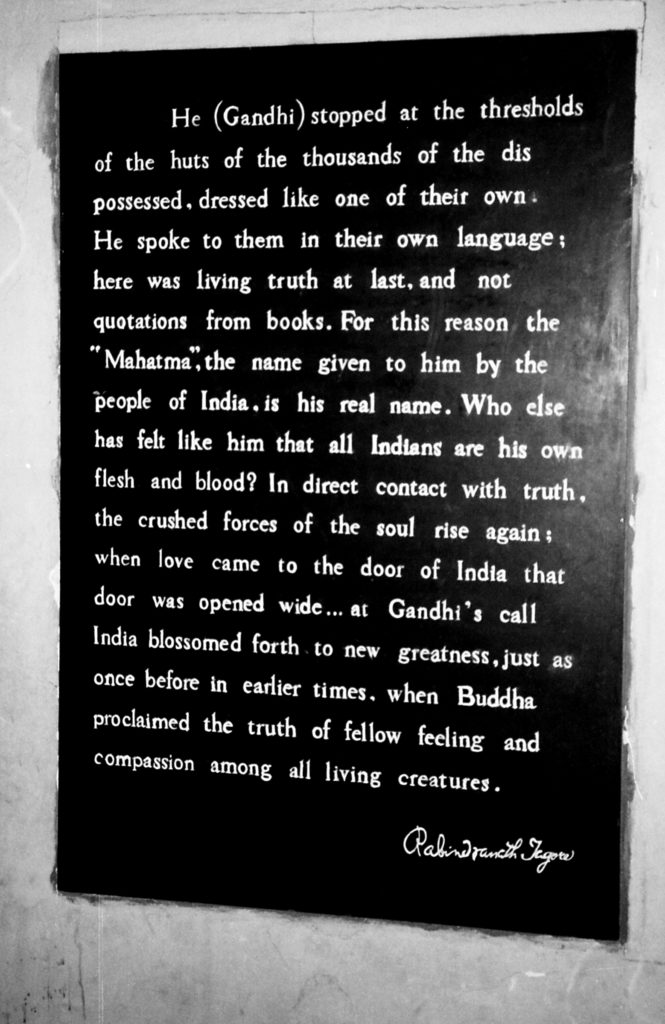
Let me give an illustration. I am in search of a vina player. I have tried East and I have tried West, but have not found the man of my quest. They are all experts, they can make the strings resound to a degree, they command high prices, but for all their wonderful execution they can strike no chord in my heart. At last I come across one whose very first notes melt away the sense of oppression within. In him is the fire of the shakti of joy which can light up all other hearts by its touch. His appeal to me is instant and I hail him as Master. I then want a vina made. For this, of course are required all kinds of material and a different kind of science. If, finding me to be lacking in the means my master should be moved to pity and say: “Never mind, my son do not go to the expense in workmanship and time which a vina will require. Take rather this simple string tightened across a piece of wood and practise on it. In a short time you will find it to be as good as a vina.” Would that do? I am afraid not. It would, in fact, be a mistaken kindness for the master thus to take pity on my circumstances. Far better if he were to tell me plainly that such things cannot be had cheaply. It is he who should teach me that merely one string will not serve for a true vina, that the materials required are many and various; that the lines of its moulding must be shapely and precise; that if there be anything faulty, it will fail to make good music, so that all laws of science and technique of art must be rigorously and intelligently followed. In short the true function of the master player should be to evoke a response from the depths of our heart, so that we may gain the strength to wait and work till the true end is achieved.
From our master, the Mahatma may our devotion to him never grow less!—we must learn the truth of love in all its purity, but the science and art of building up swaraj is a vast subject; its pathways are difficult to traverse and take time. For this task, aspiration and emotion must be there, but no less must study and thought be there likewise. For it, the economist must think, the mechanic must labour, the educationist and statesman must teach and contrive. In a word, the mind of the country must exert itself in all directions. Above all, the spirit of Inquiry throughout the whole country must be kept intact and untrammelled, its mind not made timid or inactive by compulsion open or secret.
We know from past experience that it is not any and every call to which the country responds. It is because no one has yet been able to unite in yoga all the forces of the country in the work of its creation, that so much time has been lost over and over again. And we have been kept waiting and waiting for him who has the right and the power to make the call upon us. In the old forests of India, our gurus, in the fullness of their vision of the truth had sent forth such a call saying: “As the rivers flow on their downward course, as the months flow on to the year, so let all seekers after Truth come from all sides”. The initiation into Truth of that day has borne fruit, undying to this day, and the voice of its message still rings in the ears of the world.
Why should not our guru of today, who would lead us on the paths of karma, send forth such a call? Why should he not say: “Come ye from all sides and be welcome. Let all the forces of the land be brought into action, for then alone shall the country awake. Freedom is in complete awakening, in full self-expression.” God has given the Mahatma the voice that can call, for in him there is the Truth. Why should this not be our long awaited opportunity?
But his call came to one narrow field alone. To one and all he simply says: “Spin and weave, spin and weave”. Is this the call: “Let all seekers after Truth come from all sides”? Is this the call of the New Age to new creation? When nature called to the Bee to take refuge in the narrow life of the hive, millions of bees responded to it for the sake of efficiency, and accepted the loss of sex in consequence. But this sacrifice by way of self-atrophy led to the opposite of freedom. Any country, the people of which can agree to become neuters for the sake of some temptation, or command, carries within itself its own prison-house. To spin is easy, therefore for all men it is an imposition hard to bear. The call to the case efficiency is well enough for the Bee. The wealth of power, that is Man’s, can only become manifest when his utmost is claimed.
Sparta tried to gain strength by narrowing herself down to a particular purpose, but she did not win. Athens sought to attain perfection by opening herself out in all her fullness, and she did win. Her flag of victory still flies at the masthead of man’s civilisation. It is admitted that European military camps and factories are stunting man, that their greed is cutting man down to the measure of their own narrow purpose that for these reasons joylessness darkly lowers over the West. But if man be stunted by big machines, the danger of his being stunted by small machines must not be lost sight of. The charkha in its proper place can do no harm but will rather do much good. But where, by reasoned failure to acknowledge the differences in man’s temperament it is in the wrong place, there thread can only be spun at the cost of a great deal of the mind itself. Mind is no less valuable than cotton thread.
Some are objecting: “We do not propose to curb our minds for ever, but only for a time”. But why should it be even for a time? Is it because within a short time spinning will give us swaraj? But where is the argument for this? swaraj is not concerned with our apparel only—it cannot be established on cheap clothing; its foundation is in the mind, which, with its diverse powers and its confidence in those powers, goes on all the time creating swaraj for itself. In no country in the world is the building up of swaraj completed. In some part or other of every nation, some lurking greed or illusion still perpetuates bondage. And the root of such bondage is always within the mind. Where then I ask again, is the argument that in our country swaraj can be brought about by everyone engaging for a time in spinning? A mere statement, in lieu of argument, will surely never do. If once we consent to receive fate’s oracles from human lips that will add one more to the torments of our slavery, and not the least one either. If nothing but oracles will serve to move us, oracles will have to be manufactured morning, noon and night, for the sake of urgent needs, and all other voices would be defeated. Those for whom authority is needed in place of reason, will invariably accept despotism in place of freedom. It is like cutting at the root of a tree while pouring water on the top. This is not a new thing I know. We have enough of magic in the country—magical revelation, magical healing, and all kinds of divine intervention in mundane affairs. That is exactly why I am so anxious to reinstate reason on its throne. As I have said before, God himself has given the mind sovereignty in the material world. And I say today that only those will be able to get and keep Swaraj in the material world who have realised the dignity of self-reliance and self-mastery in the spiritual world, those whom no temptation, no delusion, can induce to surrender the dignity of intellect into the keeping of others.
Some are objecting: “We do not propose to curb our minds for ever, but only for a time”. But why should it be even for a time? Is it because within a short time spinning will give us swaraj? But where is the argument for this? swaraj is not concerned with our apparel only—it cannot be established on cheap clothing; its foundation is in the mind, which, with its diverse powers and its confidence in those powers, goes on all the time creating swaraj for itself. In no country in the world is the building up of swaraj completed. In some part or other of every nation, some lurking greed or illusion still perpetuates bondage. And the root of such bondage is always within the mind.
Consider the burning of cloth, heaped up before the very eyes of our motherland shivering and ashamed in her nakedness. What is the nature of the call to do this? Is it not another instance of a magical formula? The question of using or refusing cloth of a particular manufacture belongs mainly to economic science. The discussion of the matter by our countrymen should have been in the language of economics. If the country has really come to such a habit of mind that precise thinking has become impossible for it, then our very first fight should be against such a fatal habit, to the temporary exclusion of all else if need be. Such a habit would clearly be the original sin from which all our ills are flowing. But far from this, we take the course of confirming ourselves in it by relying on the magical formula that foreign cloth is ‘impure’. Thus economics is bundled out and a fictitious moral dictum dragged into its place.
Untruth is impure in any circumstances, not merely because it may cause us material loss, but even when it does not; for it makes our inner nature unclean. This is a moral law and belongs to a higher plane. But if there be anything wrong in wearing a particular kind of cloth that would be an offence against economics, or hygiene, or aesthetics, but certainly not against morality. Some urge that any mistake which brings sorrow to body or mind is a moral wrong. To which I reply that sorrow follows in the train of every mistake. A mistake in geometry may make a road too long, or a foundation weak, or a bridge dangerous. But mathematical mistakes cannot be cured by moral maxims. If a student makes a mistake in his geometry problem and his exercise book is torn up in consequence the problem will nevertheless remain unsolved until attacked by geometrical methods. But what if the schoolmaster comes to the conclusion that unless the exercise books are condemned and destroyed, his boys will never realise the folly of their mistakes? If such conclusion be well-founded, then I can only repeat that the reformation of such moral weakness of these particular boys should take precedence over all other lessons, otherwise there is no hope of their becoming men in the future.
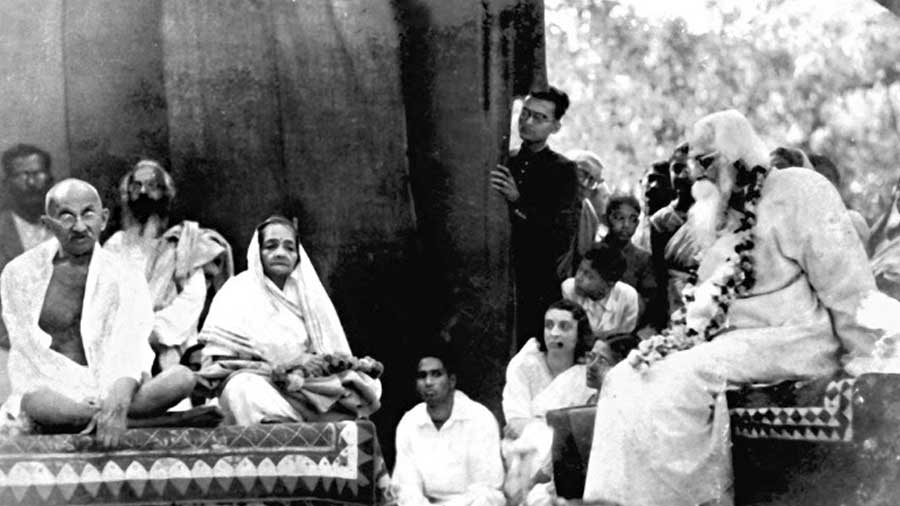
The command to burn our foreign clothes has been laid on us. I, for one, am unable to obey it. Firstly, because I conceive it to be my very first duty to put up a valiant fight against this terrible habit of blindly obeying orders, and this fight can never be carried on by our people being driven from one injunction to another. Secondly, I feel that the clothes to be burnt are not mine, but belong to those who most sorely need them. If those who are going naked should have given us the mandate to burn, it would, at least, have been a case of self-immolation and the crime of incendiarism would not lie at our door. But how can we expiate the sin of the forcible destruction of clothes which might have gone to women whose nakedness is actually keeping them prisoners unable to stir out of the privacy of their homes?
I have said repeatedly and must repeat once more that we cannot afford to lose our mind for the sake of any external gain. Where Mahatma Gandhi has declared war against the tyranny of the machine which is oppressing the whole world, we are all enrolled under his banner. But we must refuse to accept as our ally the illusion-haunted magic-ridden slave mentality that is at the root of all the poverty and insult under which our country groans. Here is the enemy itself on whose defeat alone swaraj within and without can come to us.
I have said repeatedly and must repeat once more that we cannot afford to lose our mind for the sake of any external gain. Where Mahatma Gandhi has declared war against the tyranny of the machine which is oppressing the whole world, we are all enrolled under his banner. But we must refuse to accept as our ally the illusion-haunted magic-ridden slave mentality that is at the root of all the poverty and insult under which our country groans. Here is the enemy itself on whose defeat alone swaraj within and without can come to us.
The time, moreover, has arrived when we must think of one thing more, and that is this. The awakening of India is a part of the awakening of the world. The door of the New Age has been flung open at the trumpet blast of a great war. We have read in the Mahabharata how the day of self-revelation had to be preceded by a year of retirement. The same has happened in the world today. Nations had attained nearness to each other without being aware of it, that is to say, the outside fact was there, but it had not penetrated into the mind. At the shock of the war, the truth of it stood revealed to mankind. The foundation of modern, that is Western, civilisation was shaken; and it has become evident that the convulsion is neither local nor temporary but has traversed the whole earth and will last until the shocks between man and man, which have extended from continent to continent, can be brought to rest, and a harmony be established.
From now onward, any nation which takes an isolated view of its own country will run counter to the spirit of the New Age, and know no peace. From now onward, the anxiety that each country has for its own safety must embrace the welfare of the world. For some time the working of the new spirit has occasionally shown itself even in the Government of India, which has had to make attempts to deal with its own problems in the light of the world problem. The war has torn away a veil from before our minds. What is harmful to the world, is harmful to each one of us. This was a maxim which we used to read in books. Now mankind has seen it at work and has understood that wherever there is injustice, even if the external right of possession is there, the true right is wanting. So that it is worthwhile even to sacrifice some outward right in order to gain the reality. This immense change, which is coming over the spirit of man raising it from the petty to the great is already at work even in Indian politics. There will doubtless be imperfections and obstacles without number. Self-interest is sure to attack enlightened interest at every step. Nevertheless it would be wrong to come to the decision that the working of self-interest alone is honest, and the larger-hearted striving is hypocritical.
After sixty years of self-experience, I have found that out and out hypocrisy is an almost impossible achievement, so that the pure hypocrite is a rarity indeed. The fact is, that the character of man has always more or less of duality in it. But our logical faculty, the trap-door of our mind, is unable to admit opposites together. So when we find the good with the bad, the former is promptly rejected as spurious. In the universal movement, as it becomes manifest in different parts of the world, this duality of man’s character cannot but show itself. And whenever it does, if we pass judgment from past experience, we are sure to pronounce the selfish part of it to be the real thing; for the spirit of division and exclusion did in fact belong to the past age. But if we come to our judgment in the light of future promise, then shall we understand the enlightened large-heartedness to be the reality and the counsel which will unite each to each to be the true wisdom.
I have condemned, in unsparing terms, the present form and scope of the League of Nations and the Indian Reform Councils. I therefore feel certain that there will be no misunderstanding when I state that, even in these, I find signs of the Time Spirit, which is moving the heart of the West Although the present form is unacceptable, yet there is revealed an aspiration, which is towards the Truth, and this aspiration must not be condemned. In this morning of the world’s awakening, if in only our own national striving there is no response to its universal aspiration, that will betoken the poverty of our spirit. I do not say for a moment that we should belittle the work immediately to hand. But when the bird is roused by the dawn, all its awakening is not absorbed in its search for food. Its wings respond unweariedly to the call of the sky, its throat pours forth for songs, for joy of the new light. Universal humanity has sent us its call today. Let our mind respond in its own language for response is the only true sign of life. When of old we were immersed in the politics of dependence on others, our chief business was the compilation of others’ short-comings. Now that we have decided to dissociate our politics from dependence, are we still to establish and maintain it on the same recital of others’ sins? The state of mind so engendered will only raise the dust of angry passion, obscuring the greater world from our vision, and urge us more and more to take futile short cuts for the satisfaction of our passions. It is a sorry picture of India, which we shall display if we fail to realise for ourselves the greater India. This picture will have no light. It will have in the foreground only the business side of our aspiration. Mere business talent, however, has never created anything.
In the West, a real anxiety and effort of their higher mind to rise superior to business considerations, is beginning to be seen. I have come across many there whom this desire has imbued with the true spirit of the sannyasin, making them renounce their home-world in order to achieve the unity of man, by destroying the bondage of nationalism; men who have within their own soul realised the Advaita of humanity. Many such have I seen in England who have accepted persecution and contumely from their fellow countrymen in their struggles to free other people from the oppression of their own country’s pride of power. Some of them are amongst us here in India. I have seen sannyasins too in France—Romain Rolland for one, who is an outcast from his own people. I have also seen them in the minor countries of Europe. I have watched the faces of European students all aglow with the hope of a united mankind, prepared manfully to bear all the blows, cheerfully to submit to all the insults, of the present age for the glory of the age to come. And are we alone to be content with telling the beads of negation, harping on others’ faults and proceeding with the erosion of Swaraj on a foundation of quarrelsomeness? Shall it not be our first duty in the dawn to remember Him, who is One, who is without distinction of class or colour, and who with his varied shakti makes true provision for the inherent need of each and every class; and to pray to the Giver of Wisdom to unite us all in right understanding:—
Yo ekovarno vahudha shakti yogat
Varnanekan nihitarthodadhati
Vichaiti chante vishwamadau
Sa no buddhya subhaya samyunaktu!
(The following article by Gandhi on Tagore and his criticism appeared in Young India of 13 October 1921. It was in reply to ‘The Call of Truth’)
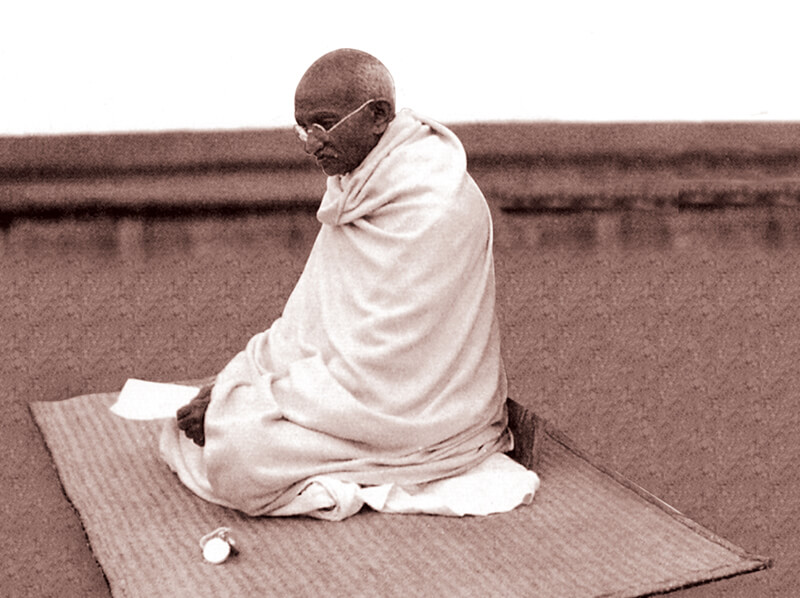
The Bard of Santiniketan has contributed to the Modern Review a brilliant essay on the present movement. It is a series of word pictures which he alone can paint. It is an eloquent protest against authority, slave mentality or whatever description one gives of blind acceptance of a passing mania whether out of fear or hope. It is a welcome and wholesome reminder to all workers that we must not be impatient, we must not impose authority no matter how great. The poet tells us summarily to reject anything and everything that does not appeal to our reason or heart. If we would gain swaraj we must stand for Truth as we know it, at any cost. A reformer, who is enraged because his message is not accepted must retire to the forest to learn how to watch, wait and pray. With all this one must heartily agree, and the Poet deserves the thanks of his countrymen for standing up for Truth and Reason. There is no doubt that our last state will be worse than our first, if we surrender our reason into somebody’s keeping. And I would feel extremely sorry to discover that the country had unthinkingly and blindly followed all I had said or done. I am quite conscious of the fact that blind surrender to love is often more mischievous than a forced surrender to the lash of the tyrant. There is hope for the slave of the brute, none for that of love. Love is needed to strengthen the weak, love becomes tyrannical when it exacts obedience from an unbeliever. To mutter a mantra without knowing its value is unmanly. It is good, therefore, that the Poet has invited all who are slavishly mimicking the call of the charkha boldly to declare their revolt. His essay serves as a warning to us all who in our impatience are betrayed into intolerance or even violence against those who differ from us. I regard the Poet as a sentinel warning us against the approaching enemies called Bigotry, Lethargy, Intolerance, Ignorance, Inertia and other members of that brood.
To mutter a mantra without knowing its value is unmanly. It is good, therefore, that the Poet has invited all who are slavishly mimicking the call of the charkha boldly to declare their revolt. His essay serves as a warning to us all who in our impatience are betrayed into intolerance or even violence against those who differ from us. I regard the Poet as a sentinel warning us against the approaching enemies called Bigotry, Lethargy, Intolerance, Ignorance, Inertia and other members of that brood.
But whilst I agree with all that the Poet has said as of the necessity of watchfulness lest we cease to think, I must not be understood to endorse the proposition that there is any such blind obedience on a large scale in the country today. I have again and again appealed to reason, and let me assure him that if happily the country has come to believe in the spinning wheel as the giver of plenty, it has done so after laborious thinking, after great hesitation. I am not sure that even now educated India has assimilated the truth underlying the charkha. He must not mistake the surface dirt for the substance underneath. Let him go deeper and see for himself whether the charkha has been accepted from blind faith or from reasoned necessity.
I do indeed ask the poet and the sage to spin the wheel as a sacrament. When there is war, the poet lays down the lyre, the lawyer his law reports, the schoolboy his books. The poet will sing the true note after the war is over, the lawyer will have occasion to go to his law books when people have time to fight among themselves. When a house is on fire, all the inmates go out, and each one takes up a bucket to quench the fire. When all about me are dying for want of food, the only occupation permissible to me is to feed the hungry. It is my conviction that India is a house on fire because its manhood is being daily scorched, it is dying of hunger because it has no work to buy food with. Khulna is starving not because the people cannot work; but because they have no work. The Ceded Districts are passing successively through a fourth famine. Orissa is a land suffering from chronic famines. Our cities are not India. India lives in her seven and a half lacs of villages, and the cities live upon the villages. They do not bring their wealth from other countries. The city people are brokers and commission agents for the big houses of Europe, America and Japan. The cities have cooperated with the latter in the bleeding process that has gone on for the past two hundred years. It is my belief based on experience, that India is daily growing poorer. The circulation about her feet and legs has almost stopped. And if we do not take care, she will collapse altogether.
To a people famishing and idle, the only acceptable form in which God can dare appear is work and promise of food as wages. God created man to work for his food, and said that those who ate without work were thieves. Eighty percent of India are compulsorily thieves half the year. Is it any wonder if India has become one vast prison? Hunger is the argument that is driving India to the spinning wheel. The call of the spinning wheel is the noblest of all. Because it is the call of love. And love is swaraj. The spinning wheel will ‘curb the mind’ when die time is spent on necessary physical labour can be said to do so. We must think of millions who are today less than animals, who are almost in a dying state. The spinning wheel is the reviving draught for the millions of our dying countrymen and country-women. ‘Why should I who have no need to work for food, spin?’ may be the question asked. Because I am eating what does not belong to me. I am living on the spoilation of my countrymen. Trace the course of every pice that finds its way into your pocket, and you will realise the truth of what I write. Swaraj has no meaning for the millions if they do not know to employ their enforced idleness. The attainment of this swaraj is possible within a short time and it is so possible only by the revival of the spinning wheel.
The spinning wheel is the reviving draught for the millions of our dying countrymen and country-women. ‘Why should I who have no need to work for food, spin?’ may be the question asked. Because I am eating what does not belong to me. I am living on the spoilation of my countrymen. Trace the course of every pice that finds its way into your pocket, and you will realise the truth of what I write. Swaraj has no meaning for the millions if they do not know to employ their enforced idleness. The attainment of this swaraj is possible within a short time and it is so possible only by the revival of the spinning wheel.
I do want growth. I do want self-determination, I do want freedom, but I want all these for the soul. I doubt if the steel age is an advance upon the flint age. I am indifferent. It is the evolution of the soul to which the intellect and all our faculties have to be devoted. I have no difficulty in imagining the possibility of a man armoured after the modern style making some lasting and new discovery for mankind, but I have less difficulty in imagining the possibility of a man having nothing but a bit of flint and a dail for lighting his path or his matchlock ever singing new hymns of praise and delivering to an aching world a message of peace and goodwill upon earth. A plea for the spinning wheel is a plea for recognising the dignity of labour.
I claim that in losing the spinning wheel we lost our left lung. We are therefore suffering from galloping consumption.
The restoration of the wheel arrests the progress of the fell disease. There are certain things which all must do in all climes. The spinning wheel is the thing which all must turn in the Indian clime for the transition stage at any rate and the vast majority must for all time.
It was our love of foreign cloth that ousted the wheel from its position of dignity. Therefore I consider it a sin to wear foreign cloth. I must confess that I do not draw a sharp or any distinction between economics and ethics. Economics that hurt the moral well being of an individual or a nation are immoral and therefore sinful. Thus the economics that permit one country to prey upon another are immoral. It is sinful to buy and use articles made by sweated labour. It is sinful to eat American wheat and let my neighbour the grain dealers starve for want of custom. Similarly it is sinful for me to wear the latest finery of Regent Street, when I know that if I had but worn the things woven by the neighbouring spinners and weavers, that would have clothed me, and fed and clothed than. On the knowledge of my sin bursting upon me, I must consign the foreign garments to the flames and thus purify myself, and thenceforth rest content with the rough khadi made by my neighbours. On knowing that my neighbours may not having given up the occupation, take kindly to the spinning wheel, I must take it up myself and thus make it popular.
It was our love of foreign cloth that ousted the wheel from its position of dignity. Therefore I consider it a sin to wear foreign cloth. I must confess that I do not draw a sharp or any distinction between economics and ethics. Economics that hurt the moral well being of an individual or a nation are immoral and therefore sinful. Thus the economics that permit one country to prey upon another are immoral. It is sinful to buy and use articles made by sweated labour. It is sinful to eat American wheat and let my neighbour the grain dealers starve for want of custom. Similarly it is sinful for me to wear the latest finery of Regent Street, when I know that if I had but worn the things woven by the neighbouring spinners and weavers, that would have clothed me, and fed and clothed than. On the knowledge of my sin bursting upon me, I must consign the foreign garments to the flames and thus purify myself, and thenceforth rest content with the rough khadi made by my neighbours. On knowing that my neighbours may not having given up the occupation, take kindly to the spinning wheel, I must take it up myself and thus make it popular.
Nor is the scheme of Non-cooperation or swadeshi an exclusive doctrine. My modesty has prevented me from declaring from the house top that the message of Non- cooperation, Nonviolence and swadeshi, is a message to the world. It must fall flat, if it does not bear fruit in the soil where it has been delivered. At the present moment India has nothing to share with the world save her degradation, pauperism and plagues. Is it her ancient shastras that we should send to the world? Well they are printed in many editions, and an incredulous and idolatrous world refuses to look at them, because we, the heirs and custodians, do not live them. Before, therefore, I can think of sharing with the world, I must possess. Our Non-cooperation is neither with the English nor with the West. Our Non-cooperation is with the system the English have established, with the material civilisation and its attendant greed and exploitation of the weak. Our Non-cooperation is a retirement within ourselves. Our Non-cooperation is a refusal to co-operate with the English administrators on their own terms. We say to them, ‘Come and co-operate with us on our terms, and it will be well for us, for you and the world.’ We must refuse to be lifted off our feet. A drowning man cannot save others. In order to be fit to save others, we must try to save ourselves. Indian nationalism is not exclusive, nor aggressive, nor destructive. It is health giving, religious and therefore humanitarian. India must learn to live before she can aspire to die for humanity. The mice which helplessly find themselves between the cat’s teeth acquire no merit from their enforced sacrifice.
Our Non-cooperation is neither with the English nor with the West. Our Non-cooperation is with the system the English have established, with the material civilisation and its attendant greed and exploitation of the weak. Our Non-cooperation is a retirement within ourselves. Our Non-cooperation is a refusal to co-operate with the English administrators on their own terms.
True to his poetical instinct the Poet lives for the morrow and would have us do likewise. He presents to our admiring gaze the beautiful picture of the birds early in the morning singing hymns of praise as they soar into the sky. These birds had their day’s food and soared with rested wings in whose veins new blood had flown during the previous night. But I have had the pain of watching birds who for want of strength could not be coaxed even into a flutter of their wings. The human bird under the Indian sky gets up weaker than when he pretended to retire. For millions it is an eternal vigil or an eternal trance. It is an indescribably painful state which has to be experienced to be realised. I have found it impossible to soothe suffering patients with a song from Kabir. The hungry millions ask for one poem— invigorating food. They cannot be given it. They must earn it. And they can earn only by the sweat of their brow.
Niyatham kuru karmathvam karmajyaayohyakarmanah:
Yagnyaarthaath karmanonyathra lokoyam karmabandhanah: (8)
Thadarttham karma Kountheya mukthasanga: samachara (9)
Saha yagnaah: prajaah srishtva purovaacha prajaapathihi:
Saha yagnaah: prajaah srishtva purovaacha prajaapathihi: (10)
Devaanbhaavayathaanena the devaabhaavayanthu vah:
Parasparam bhaavayanthah: sreyah: paramavaapsyattha (11)
Ishtaanbhogaanhivodevaa daasyanthe yagnyabhaavithaah:
Thairdattaanapradayaibhyo yo bhungthe sthena eva sah: (12)
Yagnasishtaasinah: santho mutchyamte sarvakilbishaii:
Bhujamthe the thvagham paapaa ye pachanthyaathmakaranaath (13)
Annaathbhavanthi dhuthaani parjanyaadannrsambhavah:
Yagnyaathbhavathi parajanyo yagnah: karmasamudbhavah: (14)
Karma brahmoobhavam viddhi brahmaaksharasamudbhavam
Thasmaathsarvagatham brahma nithyma yagne prathishtitham (15)
Evam pravarthitham chakram naanuvarthayathiiha yah:
Aghaayurindriyaaraamo mogham paarttha sa jiivathi (16)
– Gita (Chapter III)
In these verses is contained for me the whole truth of the spinning wheel as an indispensable sacrament for the India of today. If we will take care of today, God will take care of the morrow.
Rabindranath Tagore was a polymath who reshaped Indian literature, music and art with contextual modernism in the late 19th and 20th centuries. He was the first non-European to win the Nobel Prize in Literature in 1913, but he was much more than that. He was an alternative face of modernity that arrived on the horizon just in time: when India and the world had begun to grow weary of modernity’s older face. You can read more about his life and work here.
To write a short biography for a personality like Mohanchand Karamchand Gandhi, who kept redefining himself and his impact, and whose enormous persona and impact the world is still struggling to define, would be an audacity. If one were to attempt such an audacity, one would perhaps say that this man, accorded the title ‘Mahatma’ (loose translation: ‘great soul’) cast a gigantic influence over the twentieth century and continues to cast one over the twenty first. As a political figure he arguably did more than anyone else to bring the British Raj down. As a practical philosopher his legacy of non-violence and satyagraha remains invaluable. But along with the ills of a tyrannical government, Gandhi also fought the ills of an oppressive society, along the faultlines of caste, gender and religion. He ran many journalistic publications and outlined his distinct body of thought in many books. You can read more about him and his work here.
| 2500 BC - Present | |
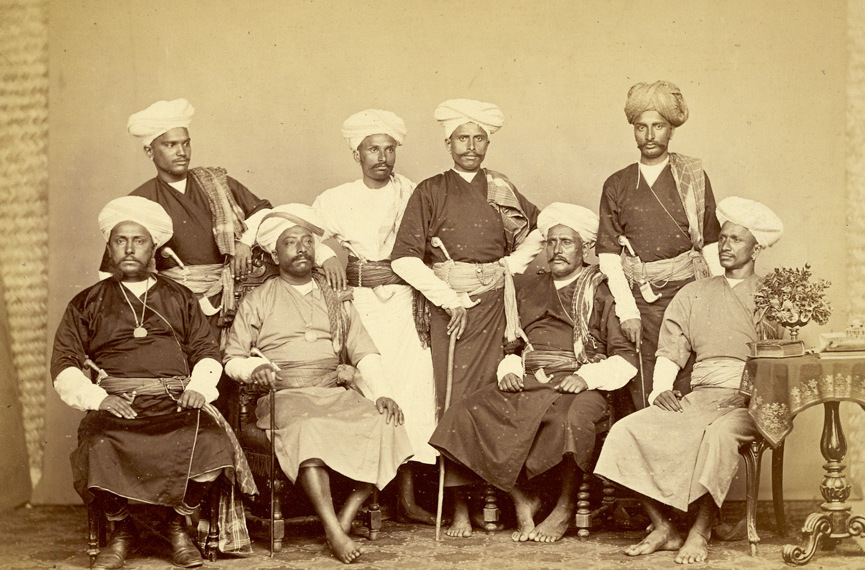
|
2500 BC - Present |
| Tribal History: Looking for the Origins of the Kodavas | |
| 2200 BC to 600 AD | |
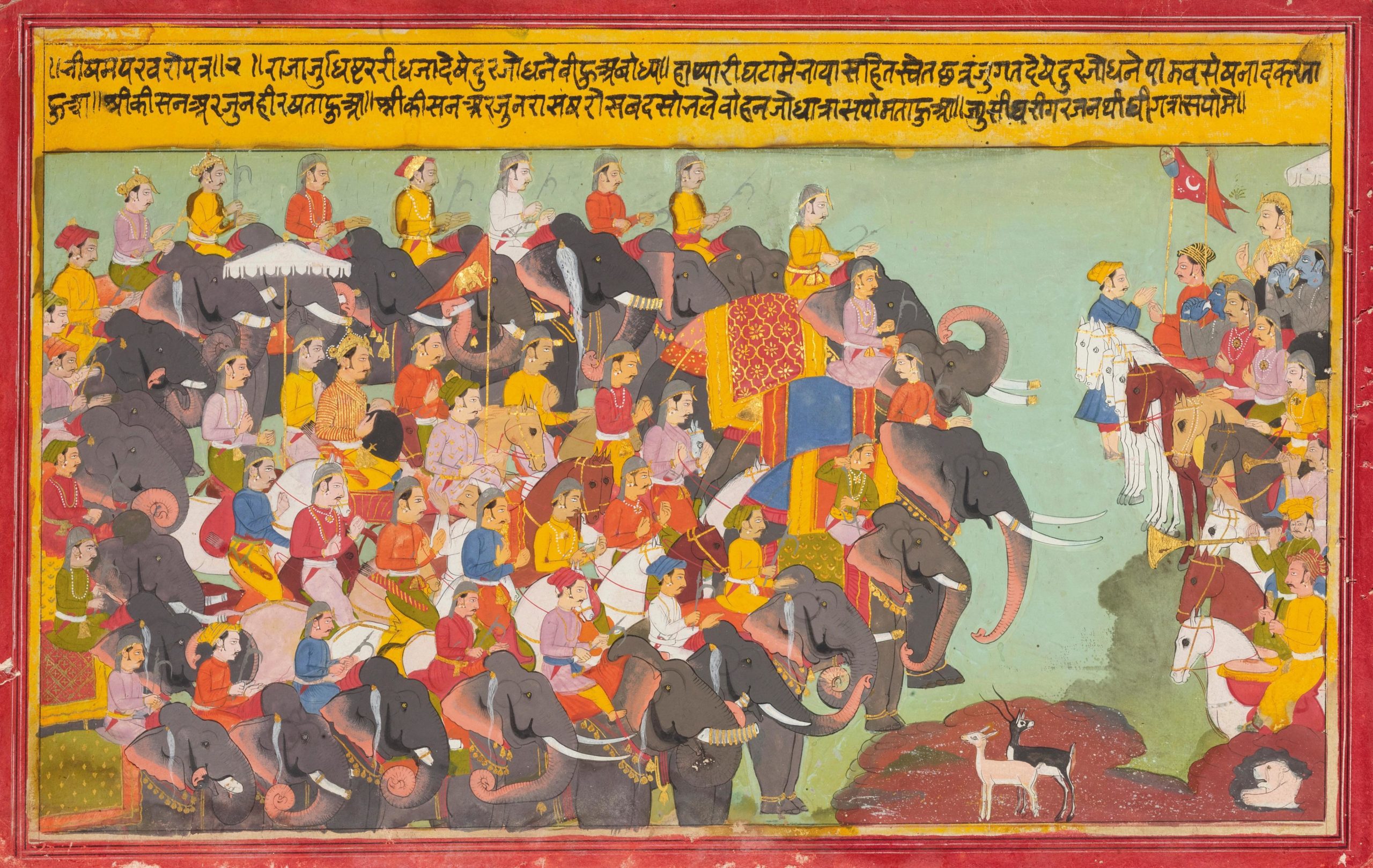
|
2200 BC to 600 AD |
| War, Political Violence and Rebellion in Ancient India | |
| 400 BC to 1001 AD | |
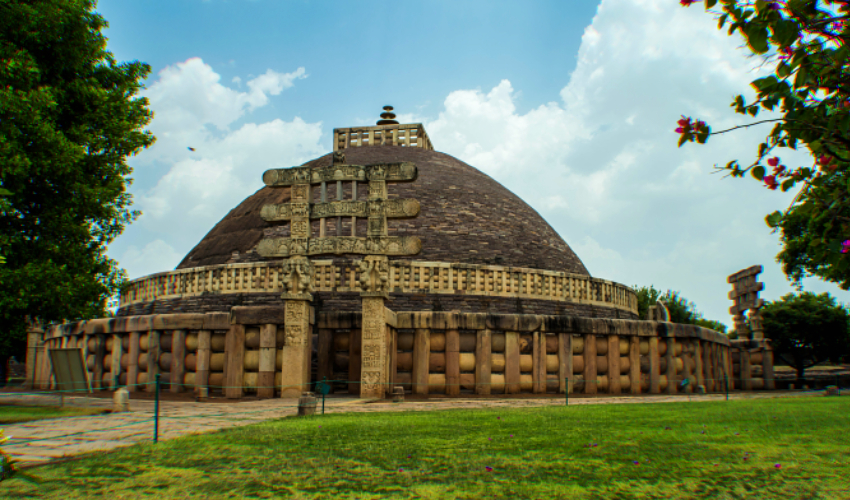
|
400 BC to 1001 AD |
| The Dissent of the ‘Nastika’ in Early India | |
| 600CE-1200CE | |
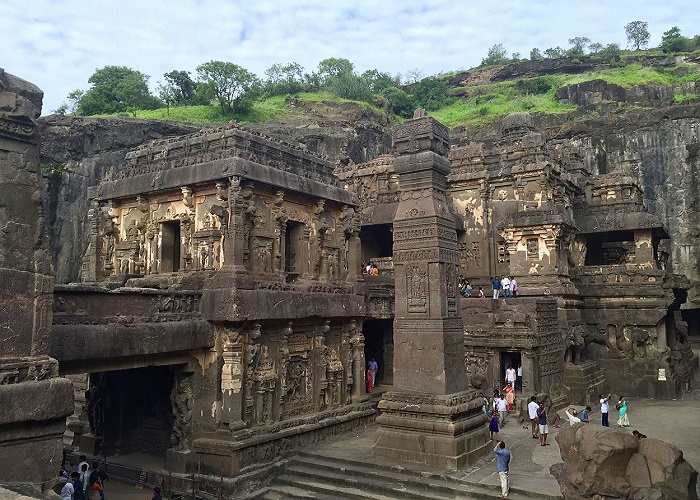
|
600CE-1200CE |
| The Other Side of the Vindhyas: An Alternative History of Power | |
| c. 700 - 1400 AD | |
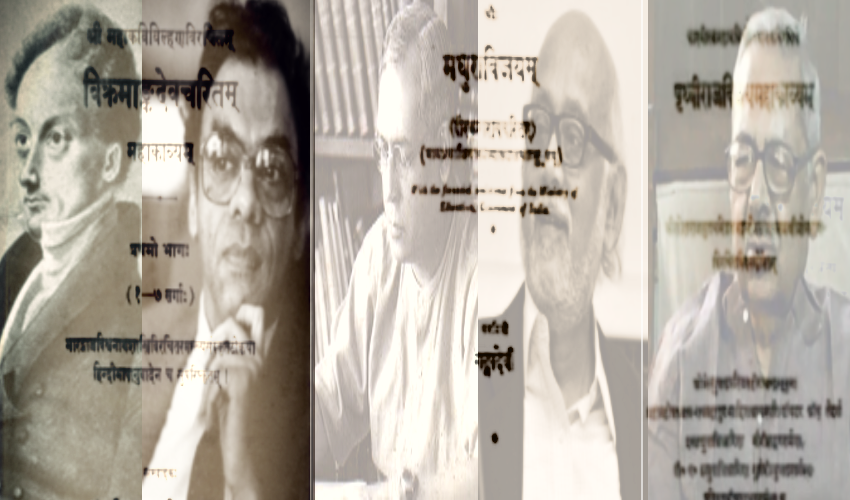
|
c. 700 - 1400 AD |
| A Historian Recommends: Representing the ‘Other’ in Indian History | |
| c. 800 - 900 CE | |
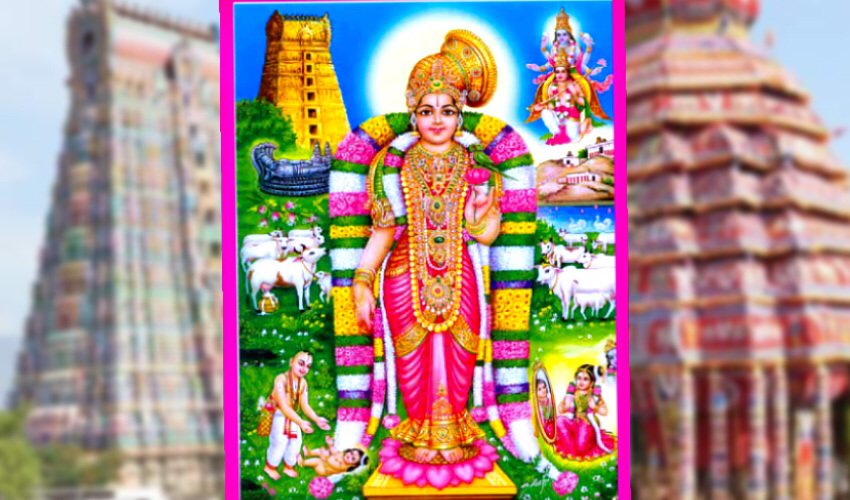
|
c. 800 - 900 CE |
| ‘Drape me in his scent’: Female Sexuality and Devotion in Andal, the Goddess | |
| 1192 | |
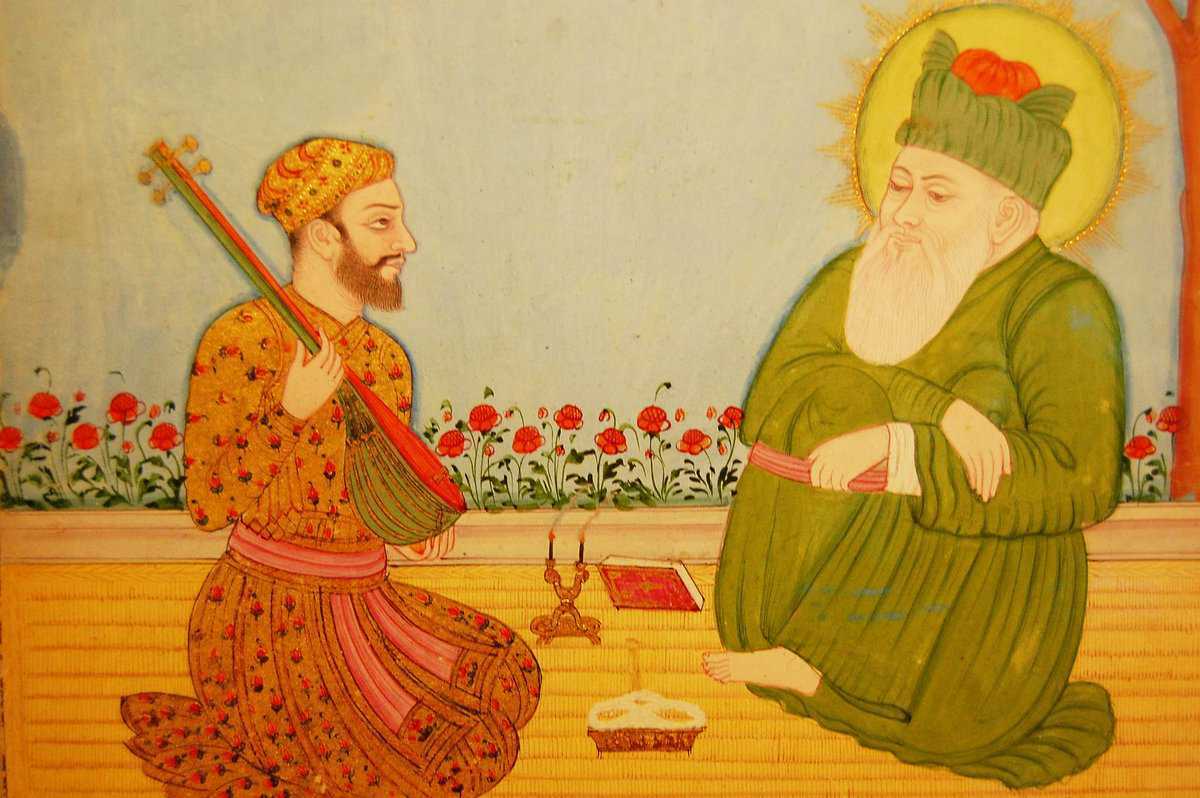
|
1192 |
| Sufi Silsilahs: The Mystic Orders in India | |
| 1200 - 1850 | |
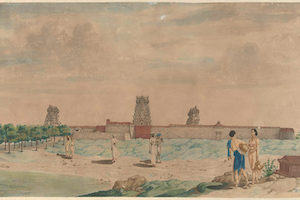
|
1200 - 1850 |
| Temples, deities, and the law. | |
| c. 1500 - 1600 AD | |
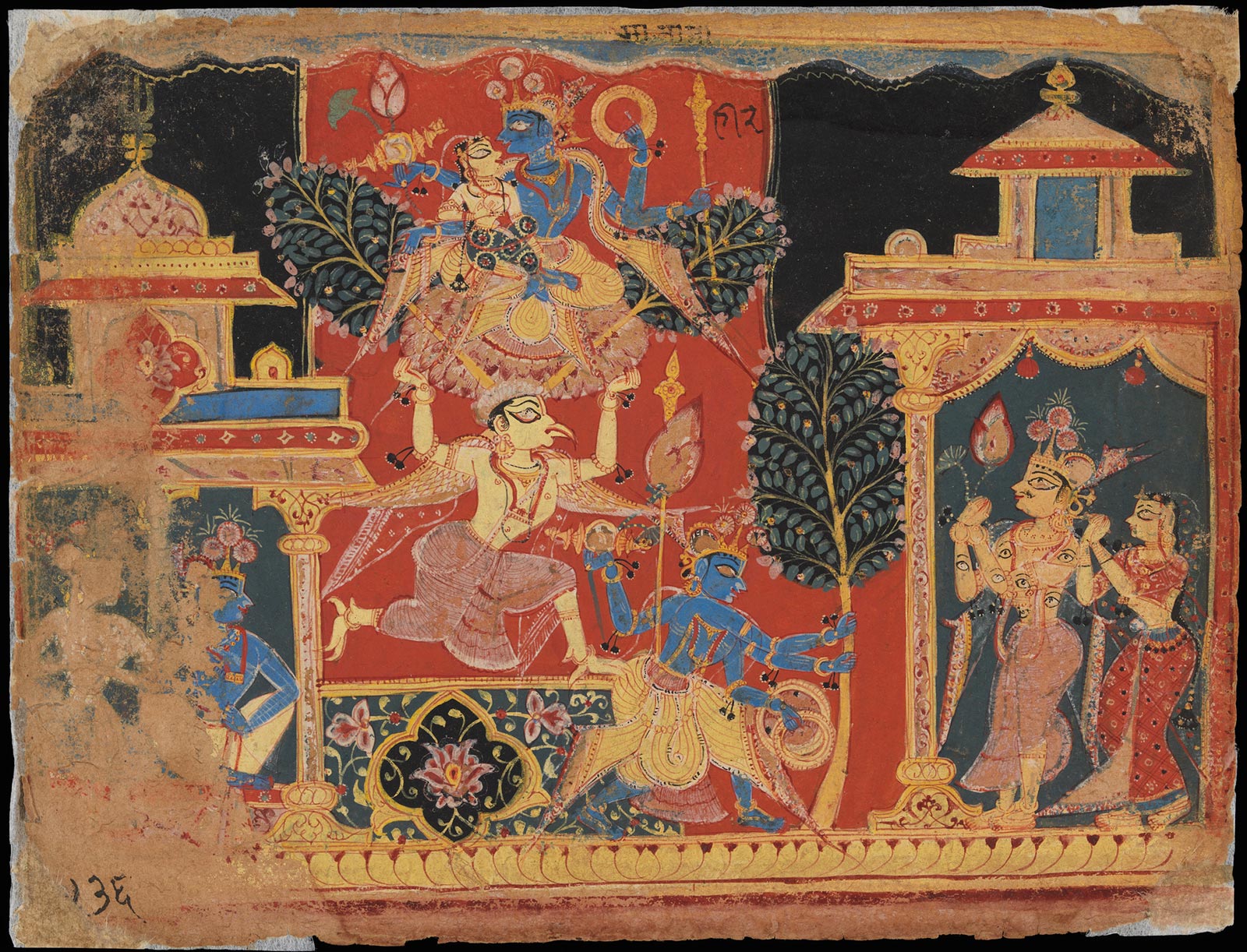
|
c. 1500 - 1600 AD |
| A Historian Recommends: Religion in Mughal India | |
| 1200-2020 | |
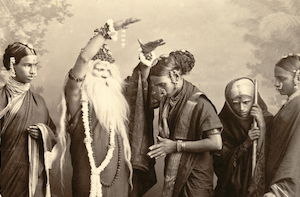
|
1200-2020 |
| Policing Untouchables and Producing Tamasha in Maharashtra | |
| 1530-1858 | |

|
1530-1858 |
| Rajputs, Mughals and the Handguns of Hindustan | |
| 1575 | |
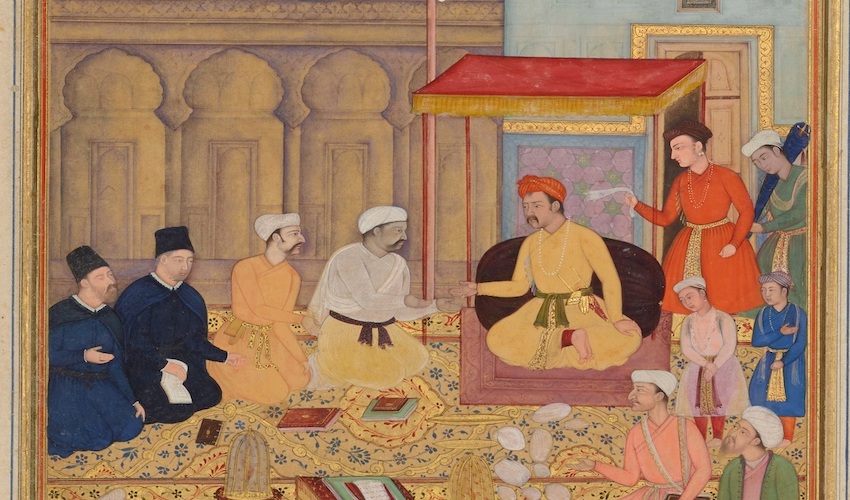
|
1575 |
| Abdul Qadir Badauni & Abul Fazl: Two Mughal Intellectuals in King Akbar‘s Court | |
| 1579 | |
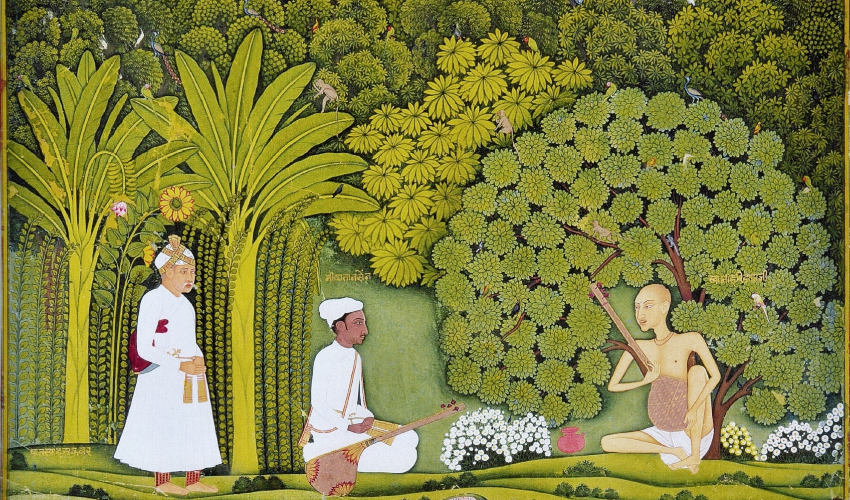
|
1579 |
| Padshah-i Islam | |
| 1550-1800 | |
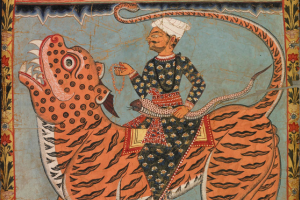
|
1550-1800 |
| Who are the Bengal Muslims? : Conversion and Islamisation in Bengal | |
| c. 1600 CE-1900 CE | |

|
c. 1600 CE-1900 CE |
| The Birth of a Community: UP’s Ghazi Miyan and Narratives of ‘Conquest’ | |
| 1553 - 1900 | |
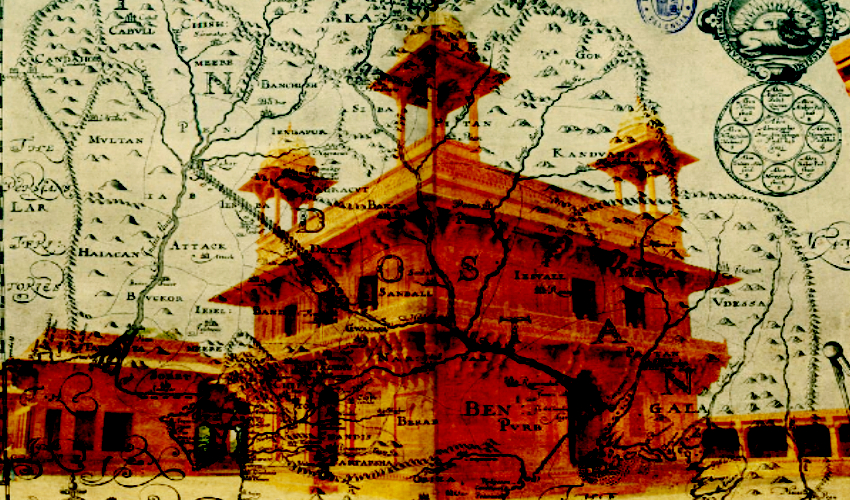
|
1553 - 1900 |
| What Happened to ‘Hindustan’? | |
| 1630-1680 | |
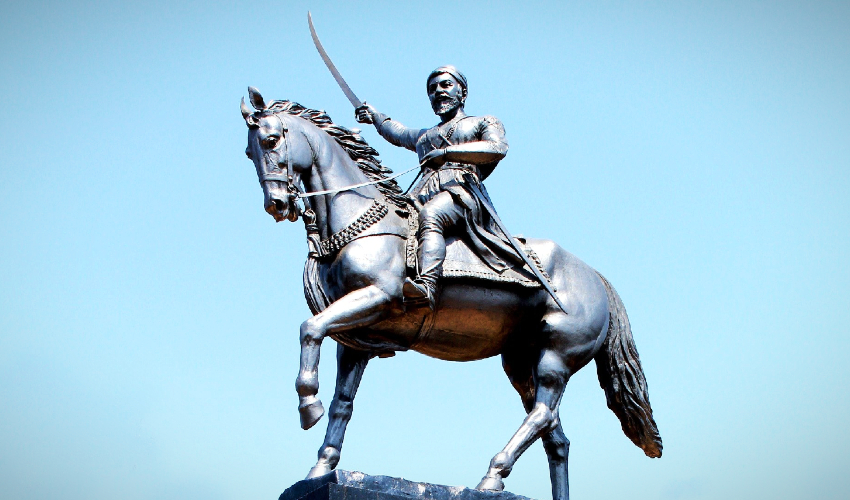
|
1630-1680 |
| Shivaji: Hindutva Icon or Secular Nationalist? | |
| 1630 -1680 | |
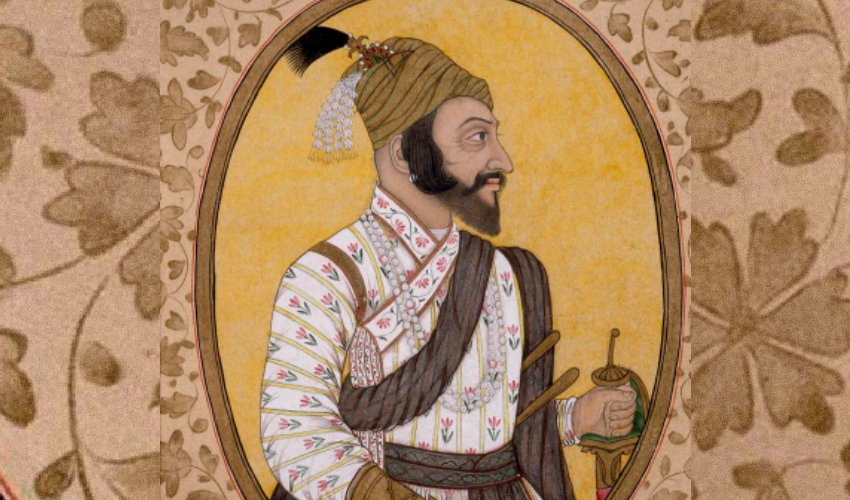
|
1630 -1680 |
| Shivaji: His Legacy & His Times | |
| c. 1724 – 1857 A.D. | |

|
c. 1724 – 1857 A.D. |
| Bahu Begum and the Gendered Struggle for Power | |
| 1818 - Present | |
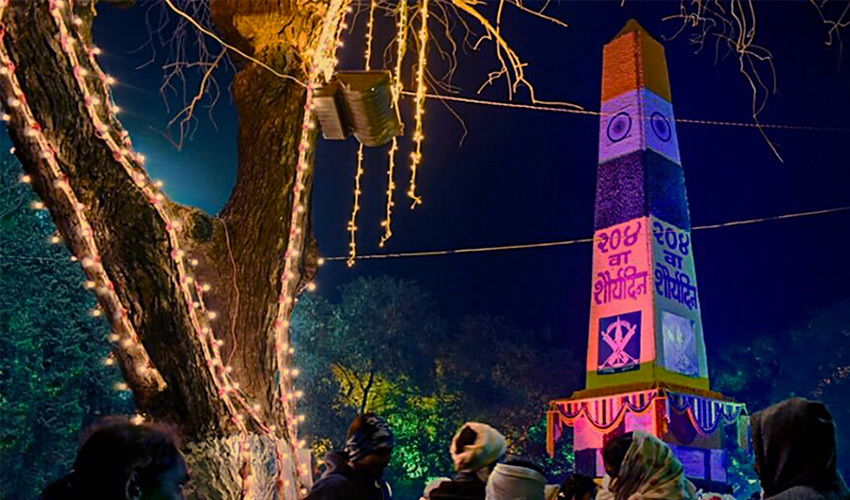
|
1818 - Present |
| The Contesting Memories of Bhima-Koregaon | |
| 1831 | |
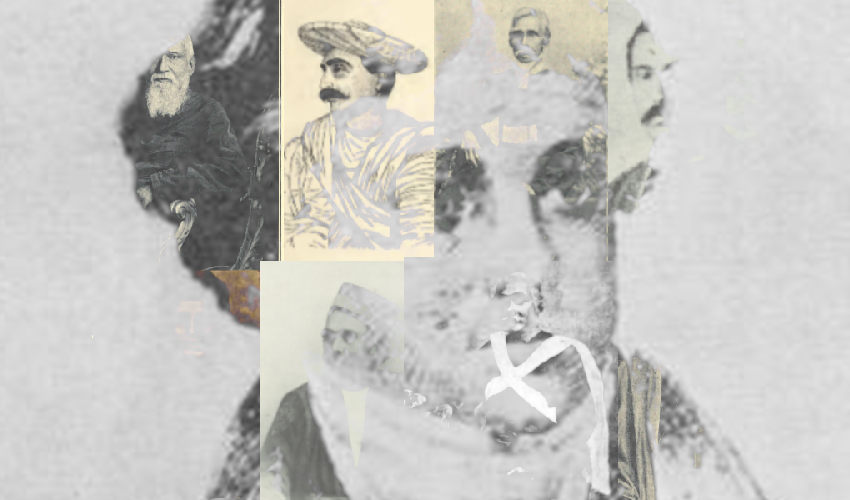
|
1831 |
| The Derozians’ India | |
| 1855 | |
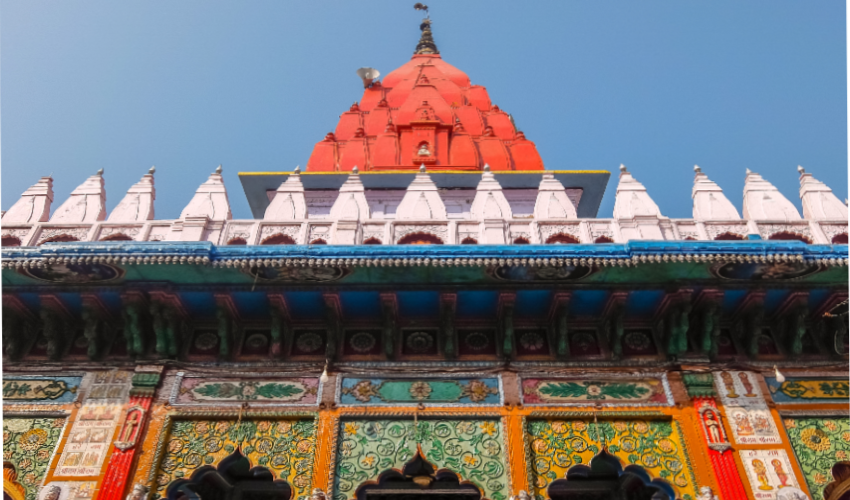
|
1855 |
| Ayodhya 1855 | |
| 1856 | |
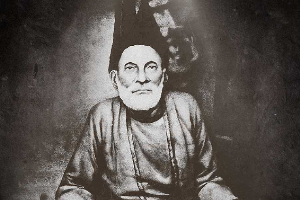
|
1856 |
| “Worshipping the dead is not an auspicious thing” — Ghalib | |
| 1857 | |
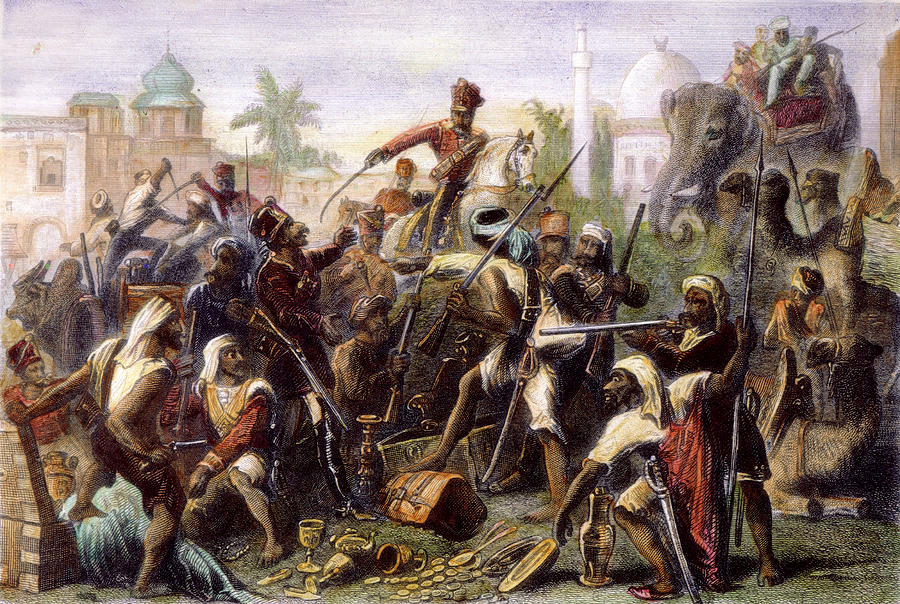
|
1857 |
| A Subaltern speaks: Dalit women’s counter-history of 1857 | |
| 1858 - 1976 | |
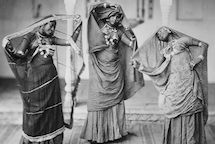
|
1858 - 1976 |
| Lifestyle as Resistance: The Curious Case of the Courtesans of Lucknow | |
| 1883 - 1894 | |
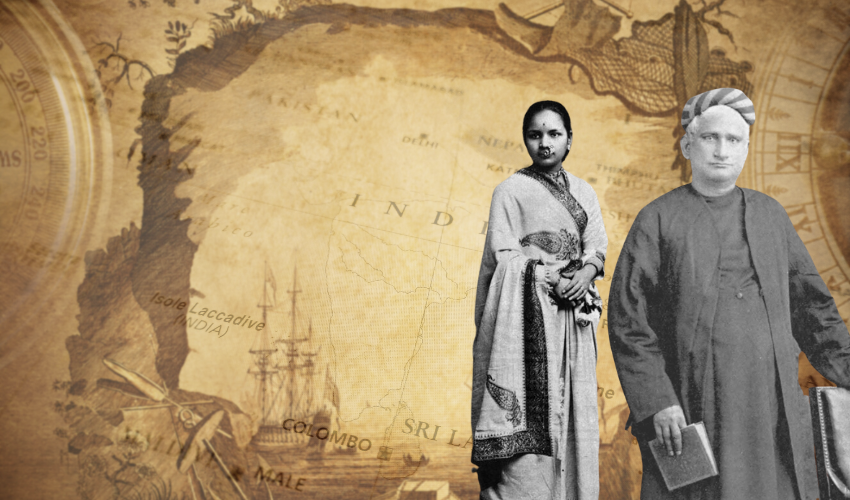
|
1883 - 1894 |
| The Sea Voyage Question: A Nineteenth century Debate | |
| 1887 | |
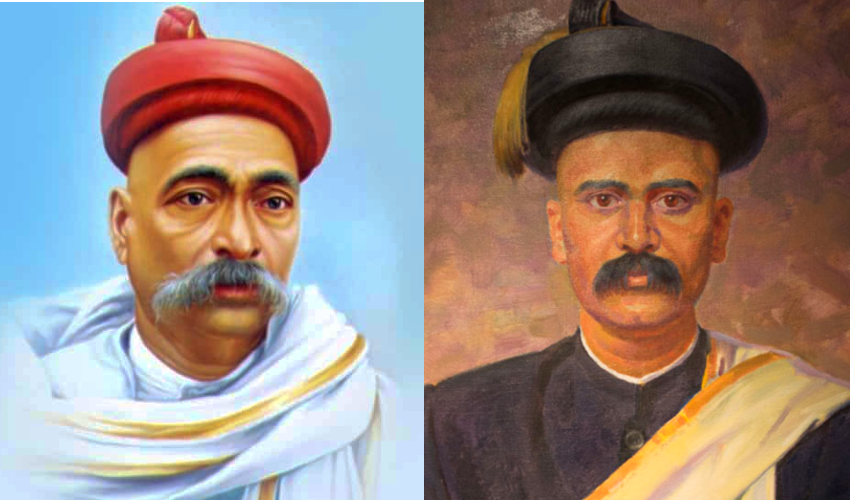
|
1887 |
| The Great Debaters: Tilak Vs. Agarkar | |
| 1893-1946 | |
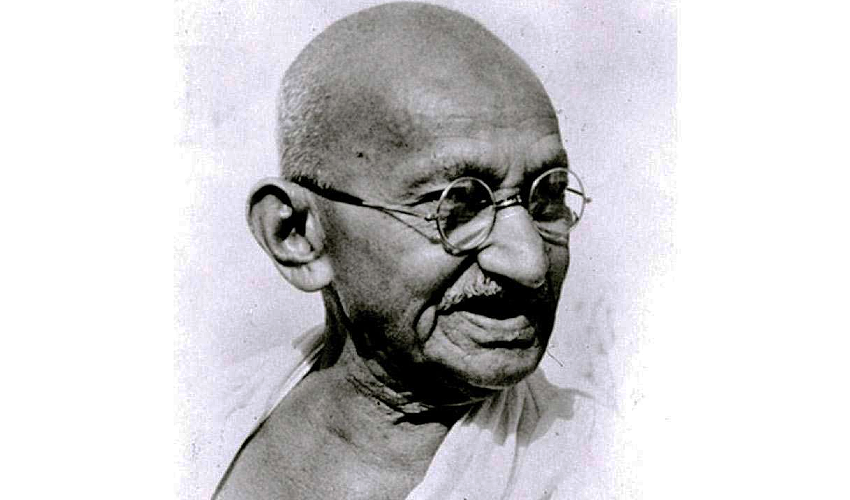
|
1893-1946 |
| A Historian Recommends: Gandhi Vs. Caste | |
| 1897 | |
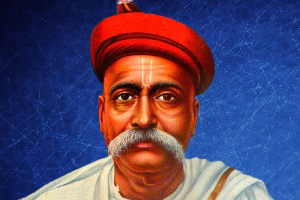
|
1897 |
| Queen Empress vs. Bal Gangadhar Tilak: An Autopsy | |
| 1913 - 1916 Modern Review | |
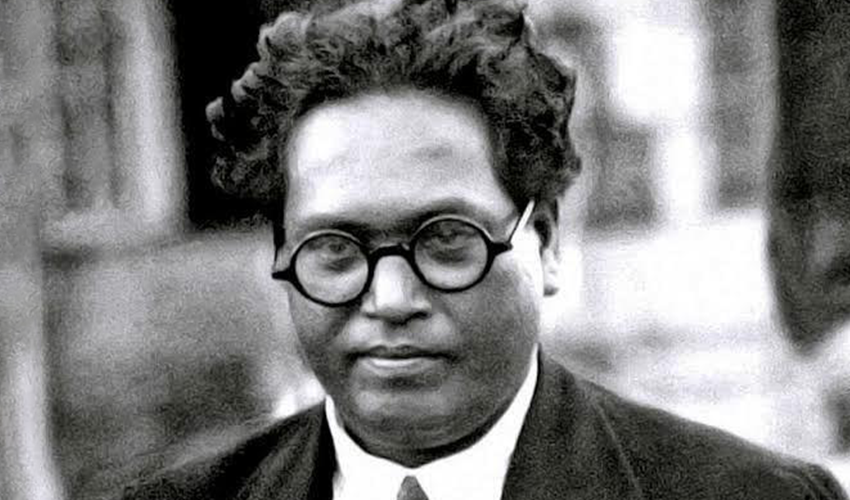
|
1913 - 1916 |
| A Young Ambedkar in New York | |
| 1916 | |
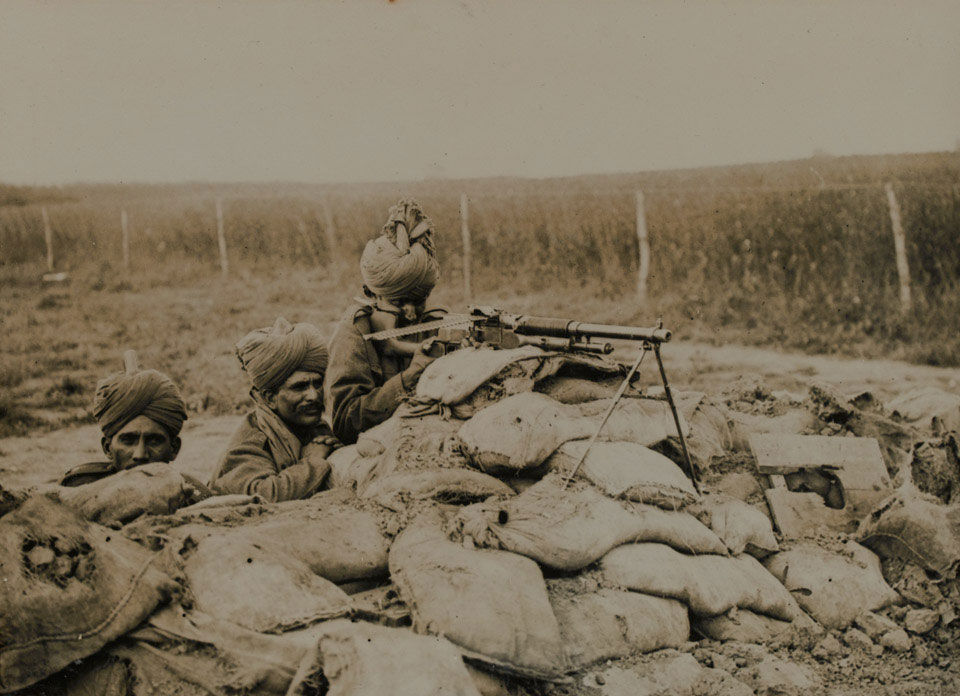
|
1916 |
| A Rare Account of World War I by an Indian Soldier | |
| 1917 | |
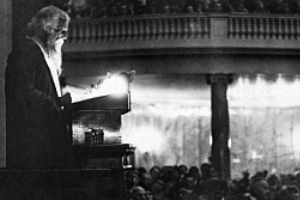
|
1917 |
| On Nationalism, by Tagore | |
| 1918 - 1919 | |

|
1918 - 1919 |
| What Happened to the Virus That Caused the World’s Deadliest Pandemic? | |
| 1920 - 1947 | |
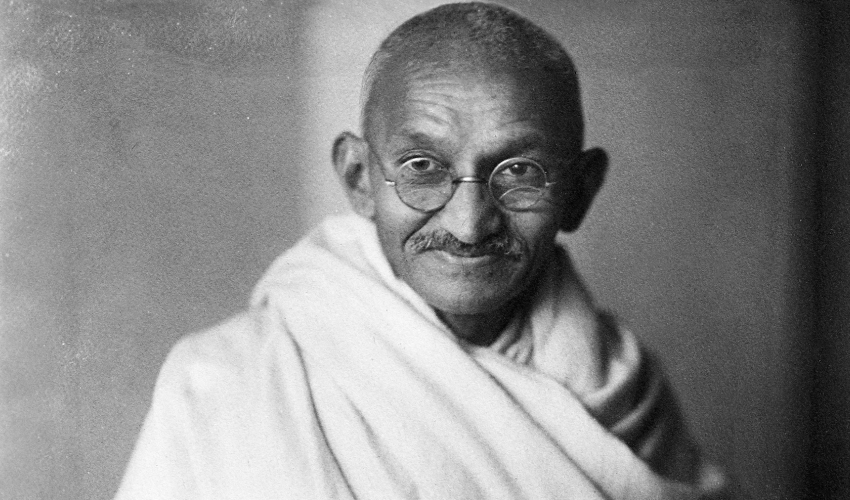
|
1920 - 1947 |
| How One Should Celebrate Diwali, According to Gandhi | |
| 1921 | |
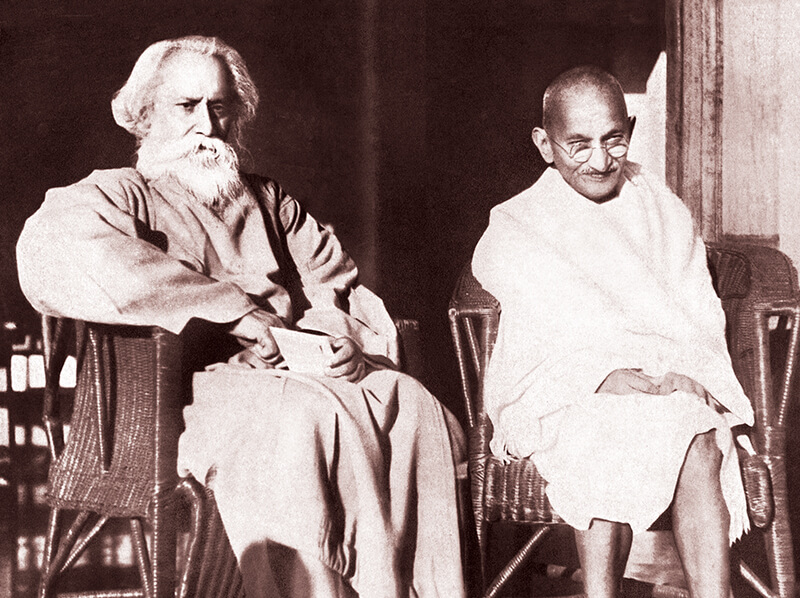
|
1921 |
| Great Debates: Tagore Vs. Gandhi (1921) | |
| 1921 - 2015 | |
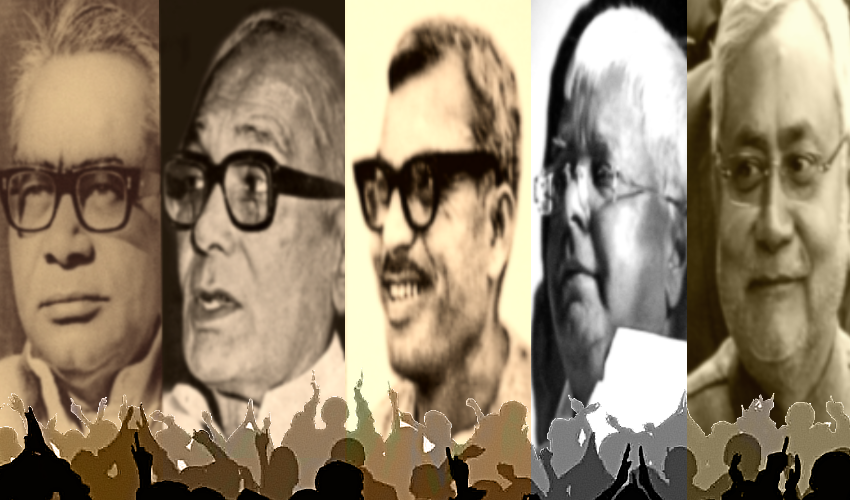
|
1921 - 2015 |
| A History of Caste Politics and Elections in Bihar | |
| 1915-1921 | |
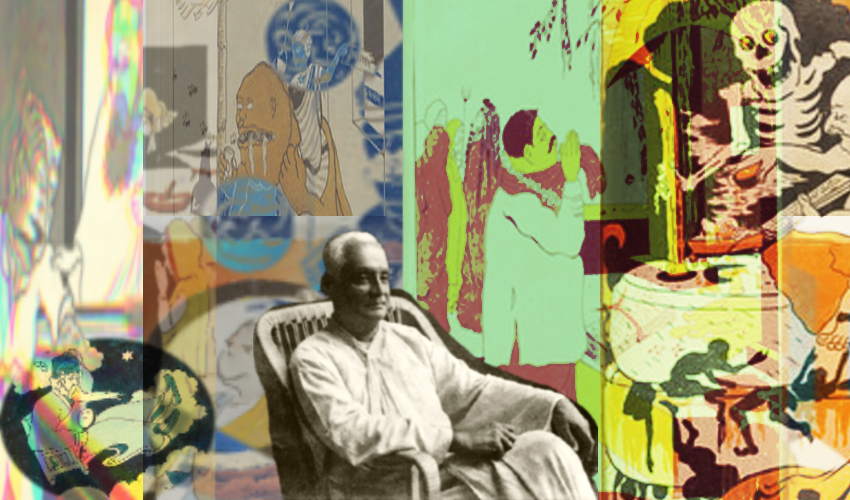
|
1915-1921 |
| The Satirical Genius of Gaganendranath Tagore | |
| 1924-1937 | |
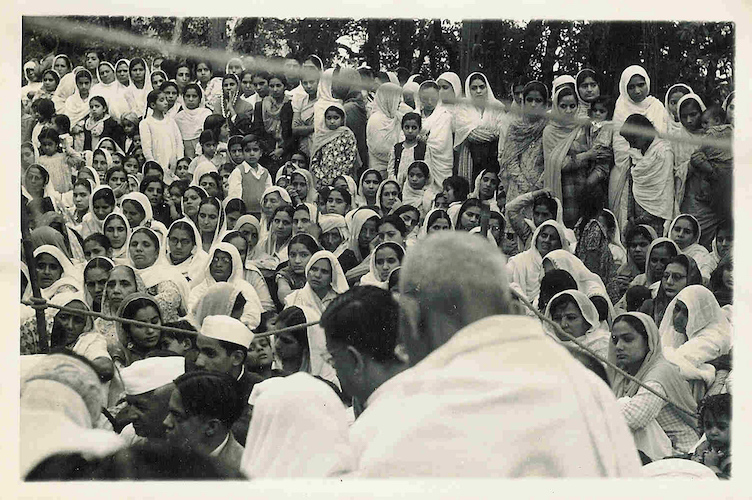
|
1924-1937 |
| What were Gandhi’s Views on Religious Conversion? | |
| 1900-1950 | |
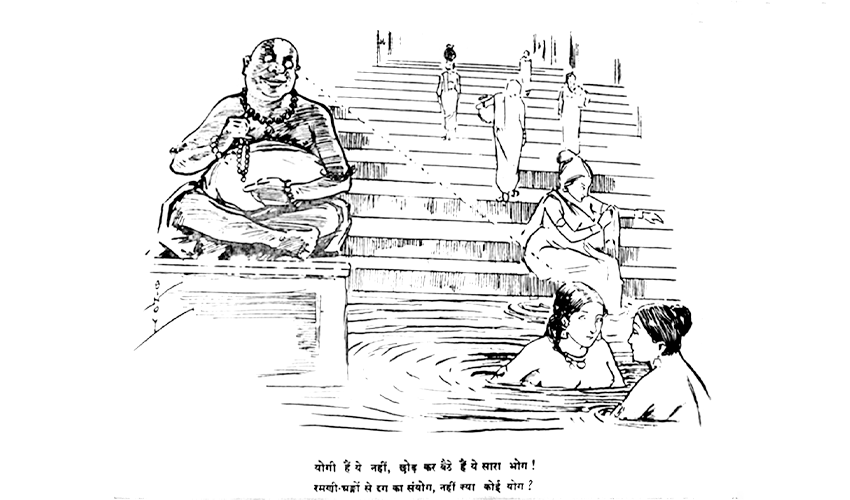
|
1900-1950 |
| Gazing at the Woman’s Body: Historicising Lust and Lechery in a Patriarchal Society | |
| 1925, 1926 | |
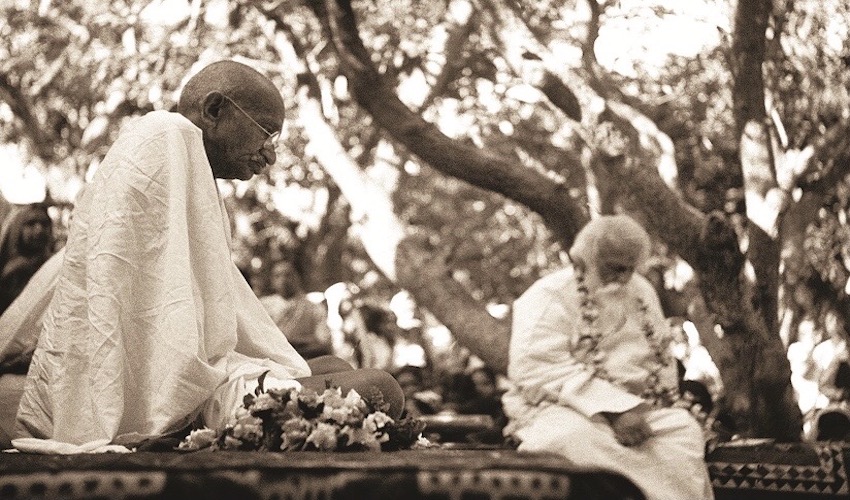
|
1925, 1926 |
| Great Debates: Tagore vs Gandhi (1925-1926) | |
| 1928 | |
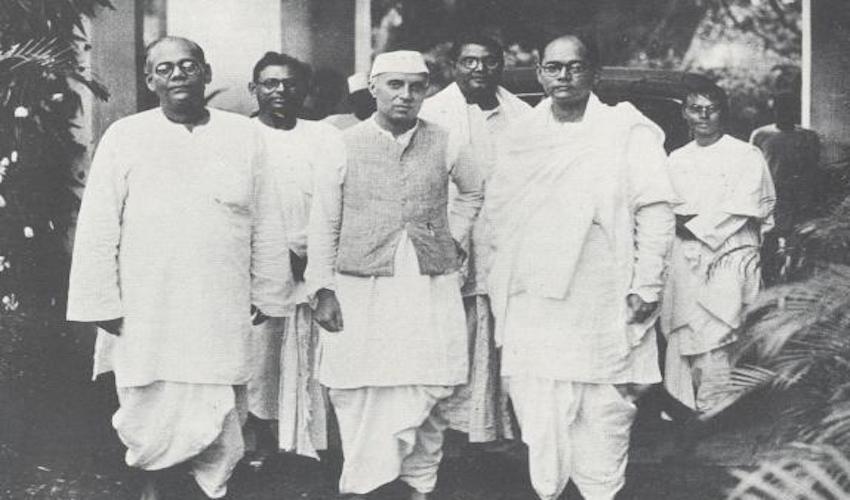
|
1928 |
| Bhagat Singh’s dilemma: Nehru or Bose? | |
| 1930 Modern Review | |
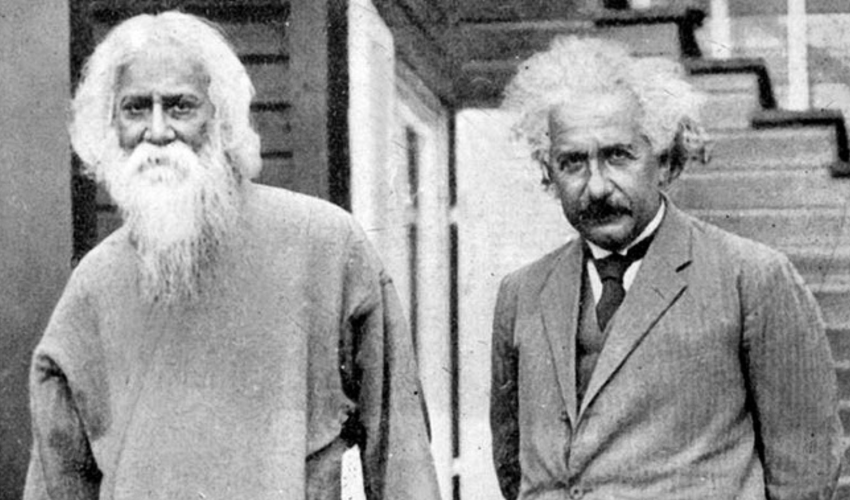
|
1930 |
| The Modern Review Special: On the Nature of Reality | |
| 1932 | |
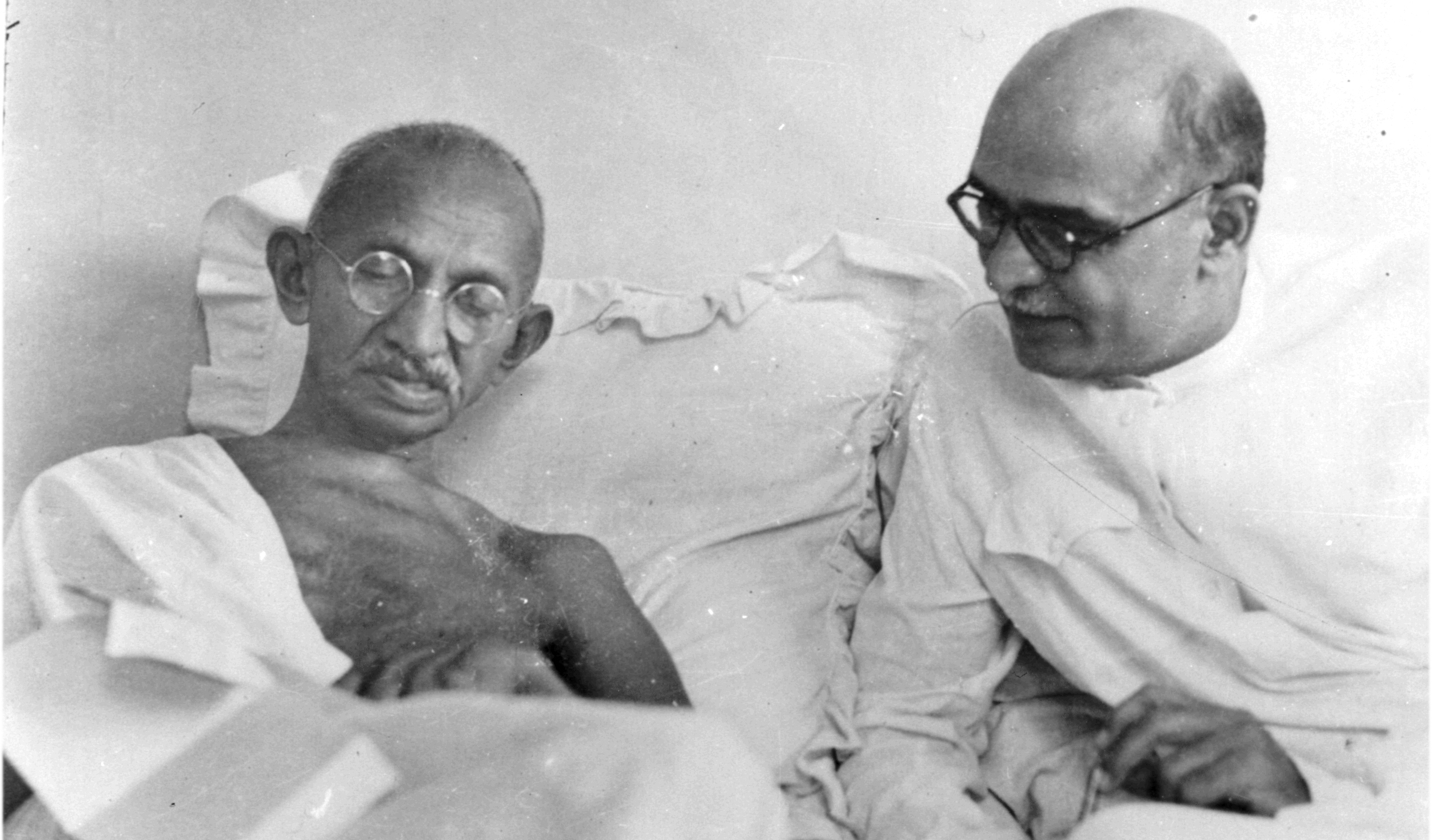
|
1932 |
| Caste, Gandhi and the Man Beside Gandhi | |
| 1933 - 1991 | |
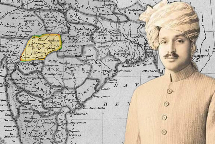
|
1933 - 1991 |
| Raghubir Sinh: The Prince Who Would Be Historian | |
| 1935 | |
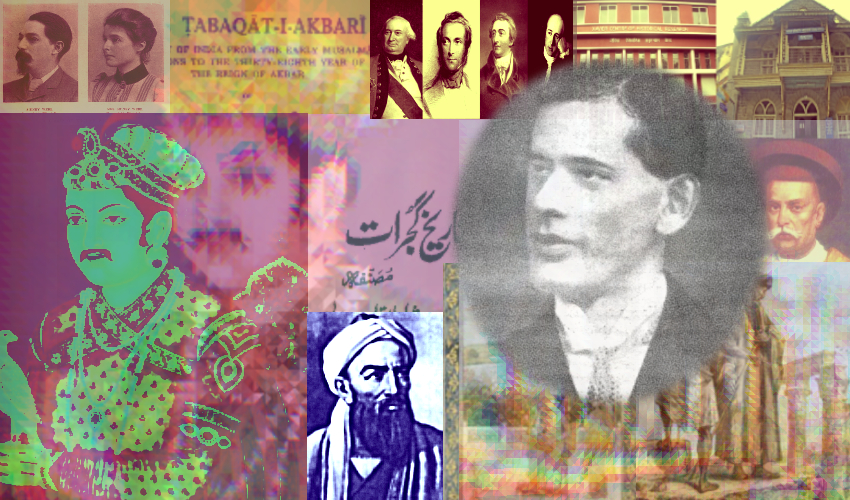
|
1935 |
| A Historian Recommends: SA Khan’s Timeless Presidential Address | |
| 1865-1928 | |
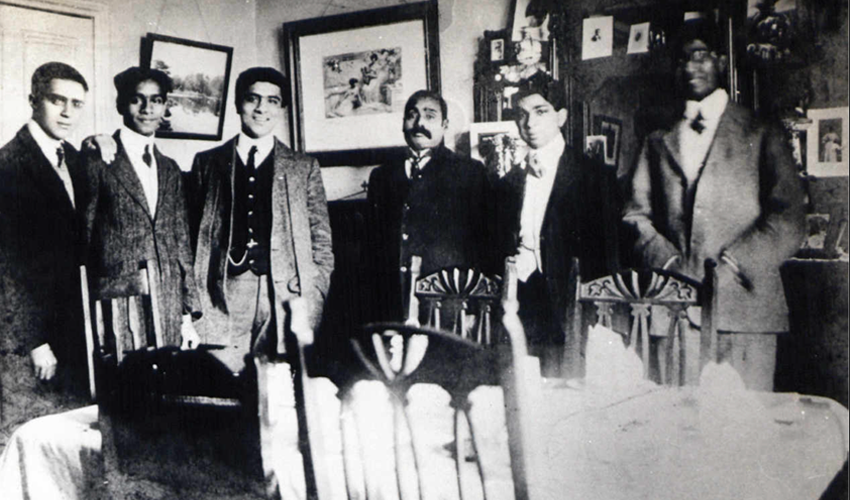
|
1865-1928 |
| Understanding Lajpat Rai’s Hindu Politics and Secularism | |
| 1935 Modern Review | |
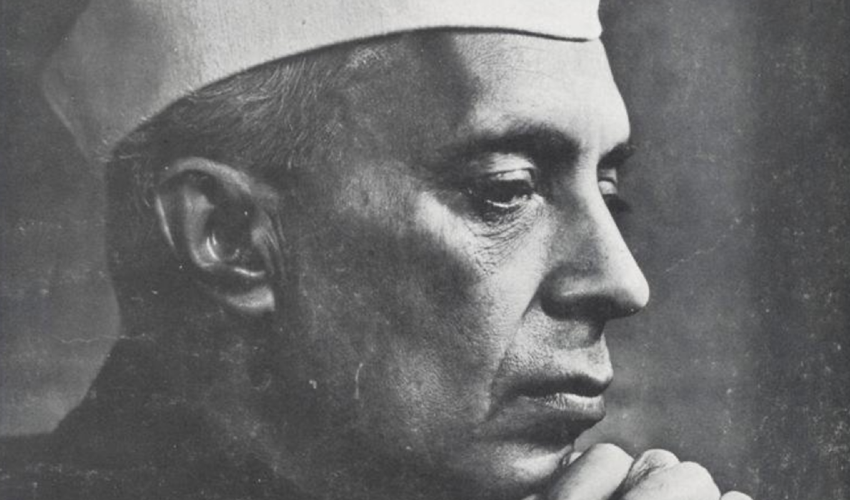
|
1935 |
| The Modern Review Special: The Mind of a Judge | |
| 1936 Modern Review | |
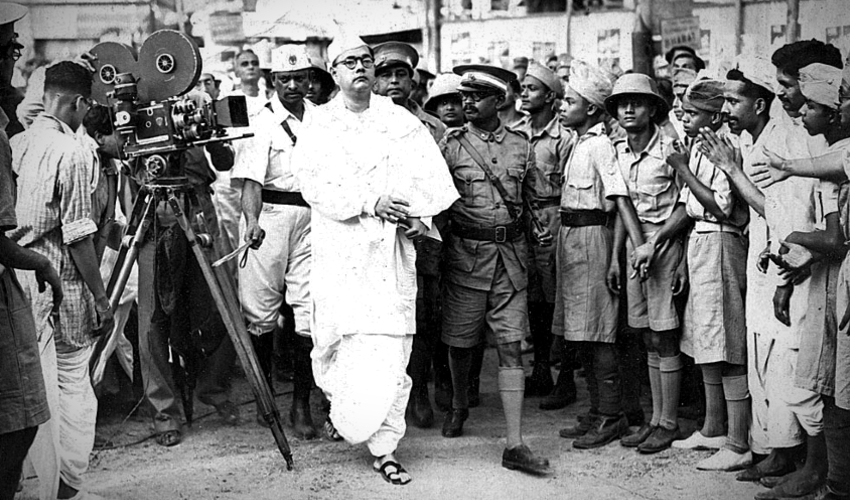
|
1936 |
| The Modern Review Special: When Netaji Subhas Bose Was Wrongfully Detained for ‘Terrorism’ | |
| 1936 | |

|
1936 |
| Annihilation of Caste: Part 1 | |
| 1936 Modern Review | |

|
1936 |
| The Modern Review Special: An Indian MP in the British Parliament | |
| 1936 | |
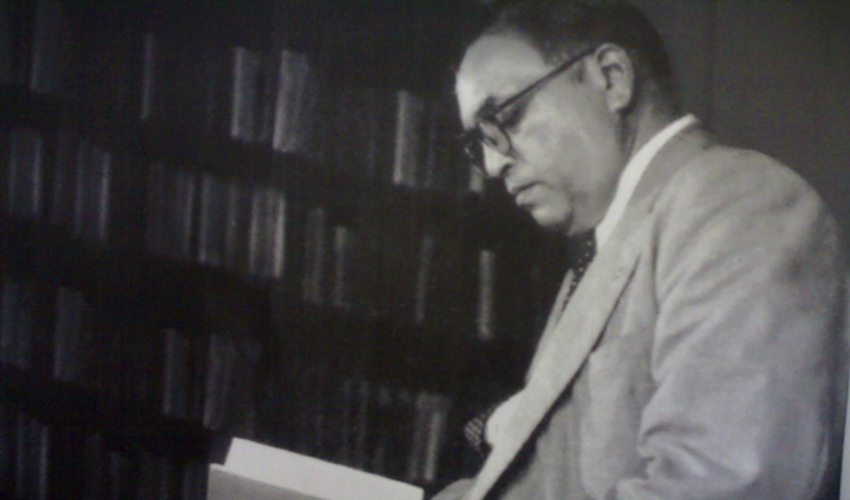
|
1936 |
| Annihilation of Caste: Part 2 | |
| 1936 | |

|
1936 |
| A Reflection of His Age: Munshi Premchand on the True Purpose of Literature | |
| 1936 Modern Review | |
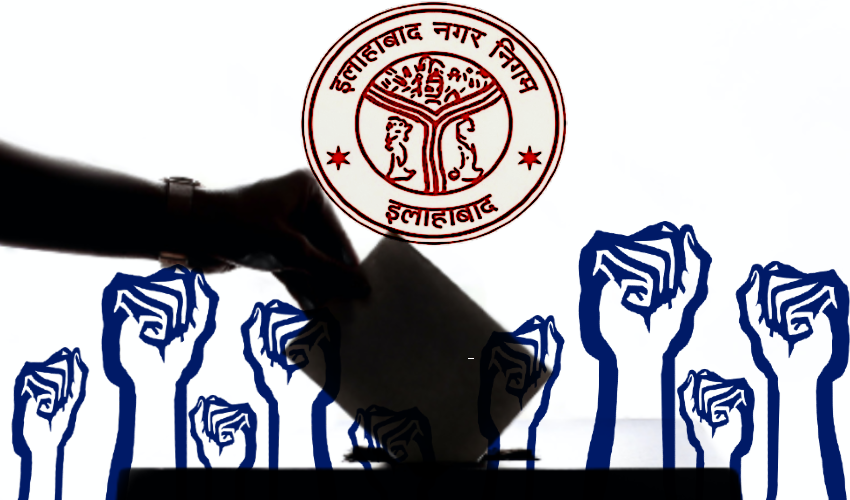
|
1936 |
| The Modern Review Special: The Defeat of a Dalit Candidate in a 1936 Municipal Election | |
| 1937 Modern Review | |
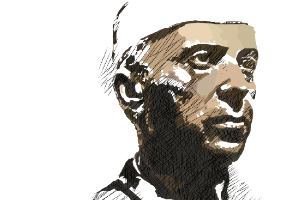
|
1937 |
| The Modern Review Special: Rashtrapati | |
| 1938 | |
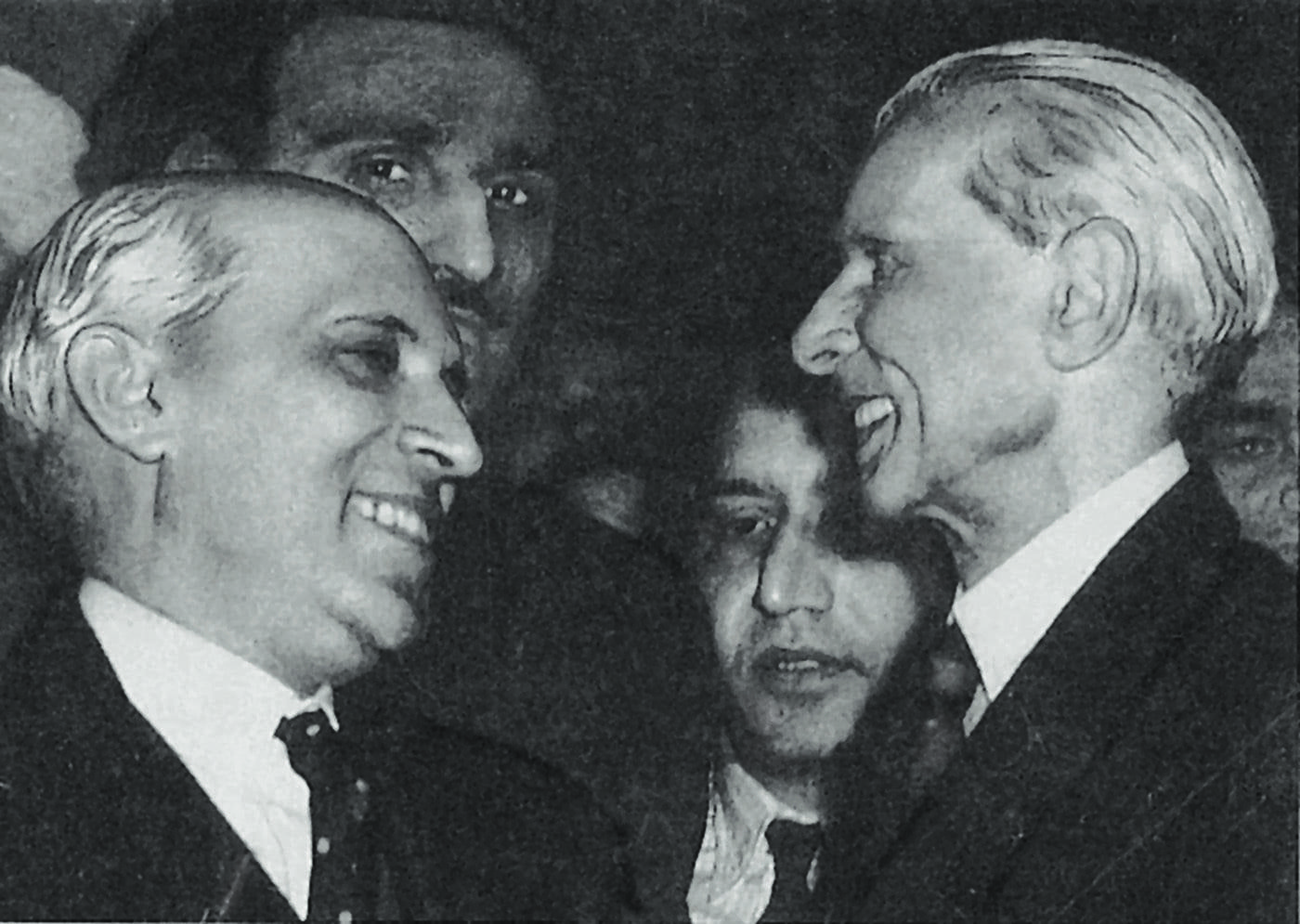
|
1938 |
| Great Debates: Nehru Vs. Jinnah (1938) | |
| 1942 Modern Review | |
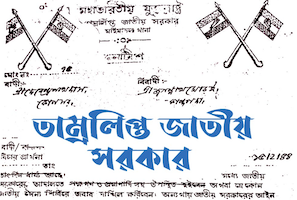
|
1942 |
| IHC Uncovers: A Parallel Government In British India (Part 1) | |
| 1942-1945 | |
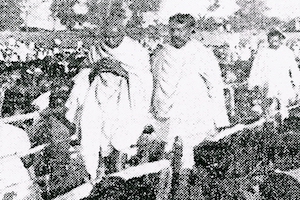
|
1942-1945 |
| IHC Uncovers: A Parallel Government in British India (Part 2) | |
| 1946 | |
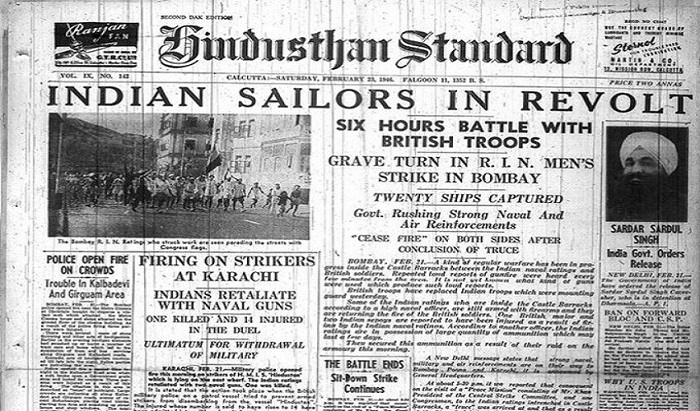
|
1946 |
| Our Last War of Independence: The Royal Indian Navy Mutiny of 1946 | |
| 1946 | |
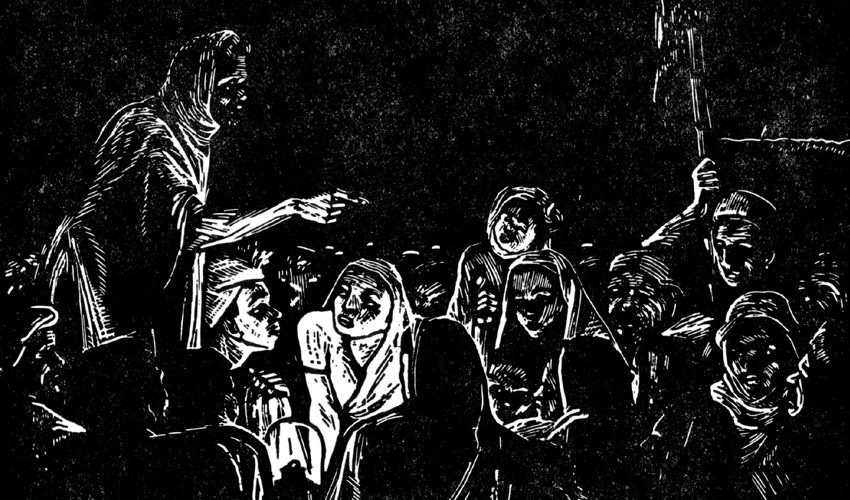
|
1946 |
| An Artist’s Account of the Tebhaga Movement in Pictures And Prose | |
| 1946 – 1947 | |
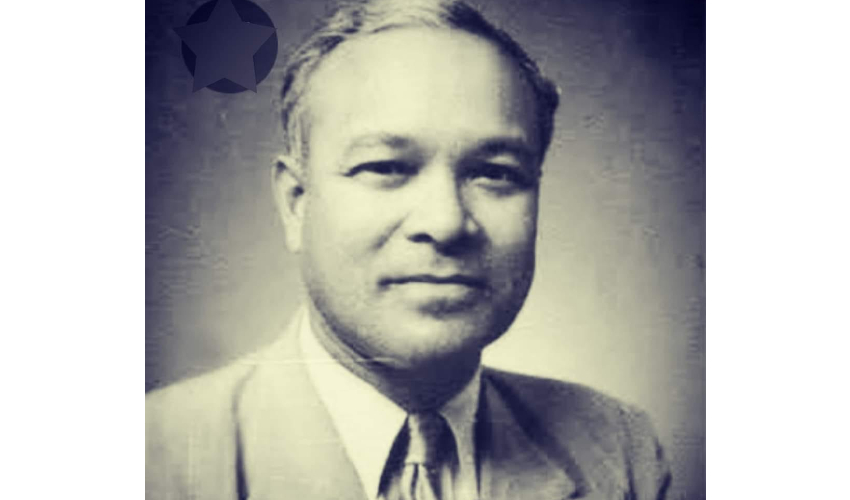
|
1946 – 1947 |
| “The Most Democratic People on Earth” : An Adivasi Voice in the Constituent Assembly | |
| 1946-1947 | |
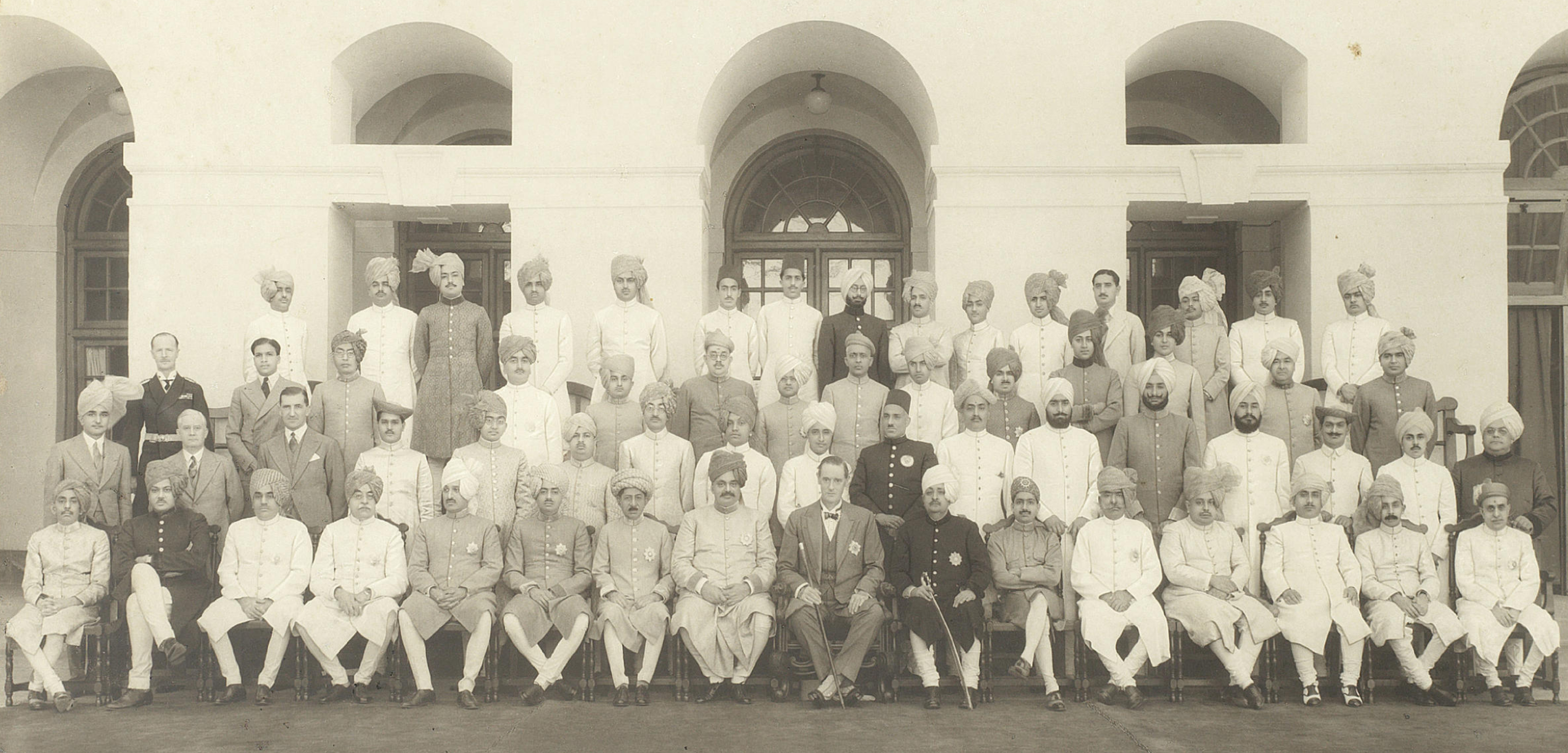
|
1946-1947 |
| VP Menon and the Birth of Independent India | |
| 1916 - 1947 | |
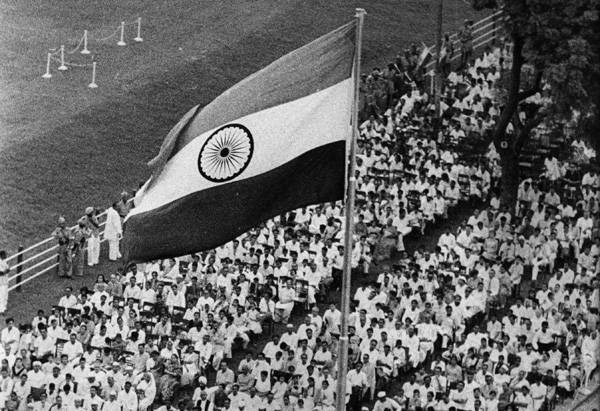
|
1916 - 1947 |
| 8 @ 75: 8 Speeches Independent Indians Must Read | |
| 1947-1951 | |
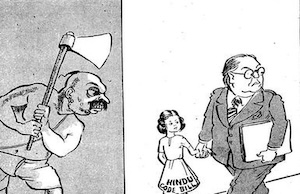
|
1947-1951 |
| Ambedkar Cartoons: The Joke’s On Us | |
| 1948 | |

|
1948 |
| “My Father, Do Not Rest” | |
| 1940-1960 | |

|
1940-1960 |
| Integration Myth: A Silenced History of Hyderabad | |
| 1948 | |
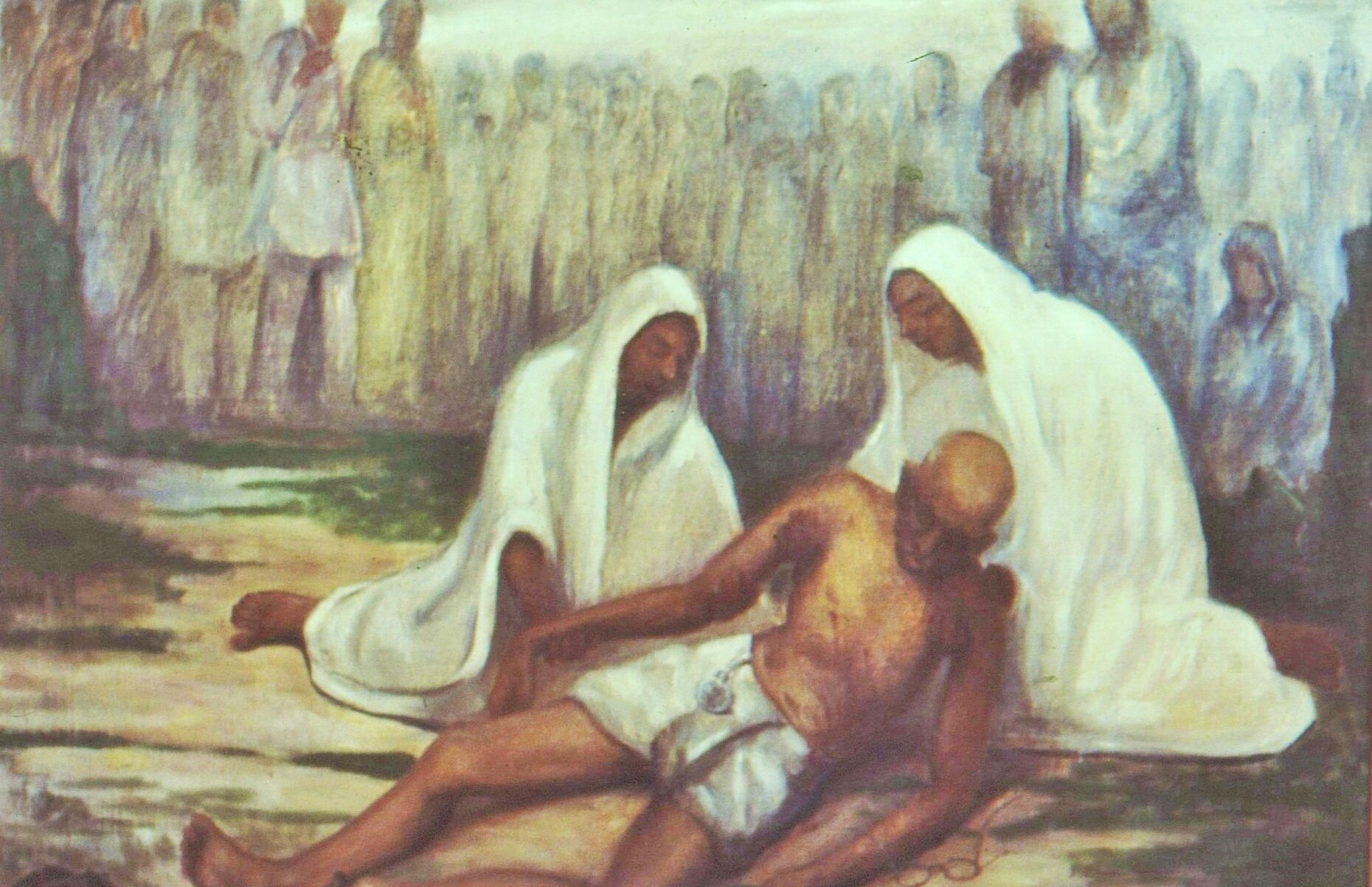
|
1948 |
| The Assassination of a Mahatma, the Princely States and the ‘Hindu’ Nation | |
| 1949 | |
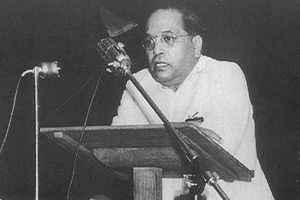
|
1949 |
| Ambedkar warns against India becoming a ‘Democracy in Form, Dictatorship in Fact’ | |
| 1950 | |
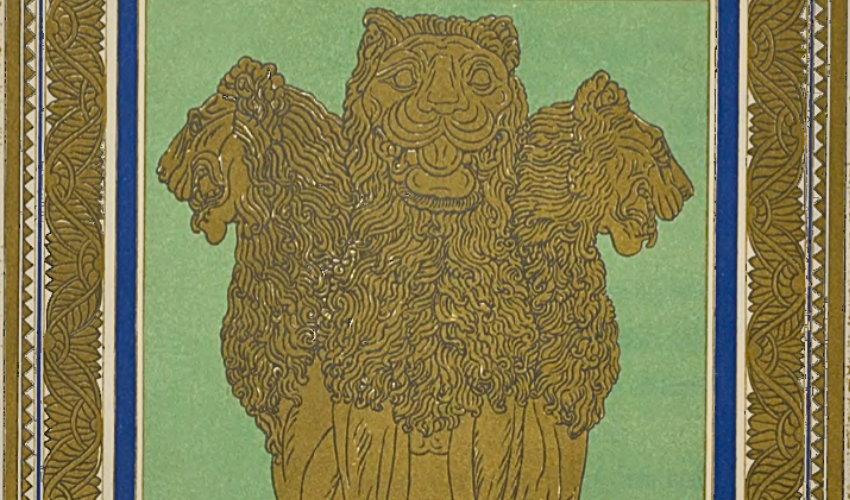
|
1950 |
| Illustrations from the constitution | |
| 1951 | |
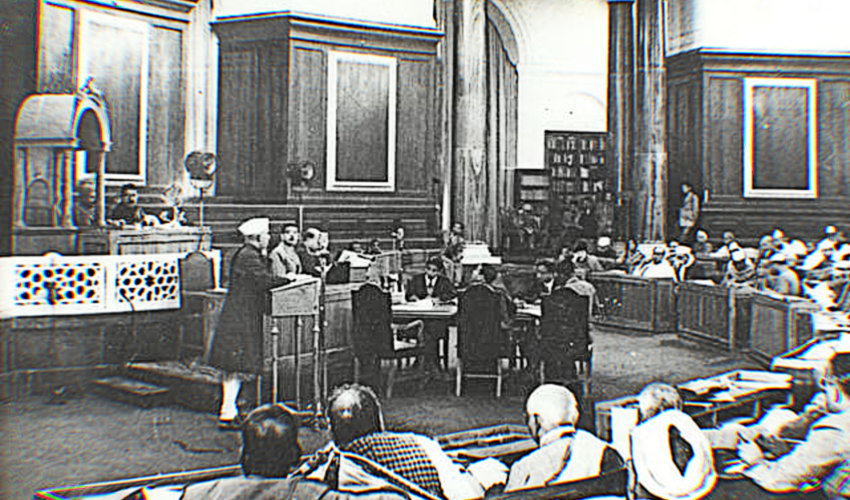
|
1951 |
| How the First Amendment to the Indian Constitution Circumscribed Our Freedoms & How it was Passed | |
| 1967 | |
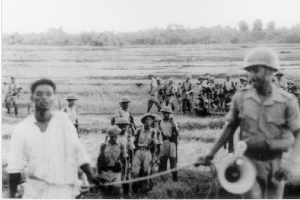
|
1967 |
| Once Upon A Time In Naxalbari | |
| 1970 | |
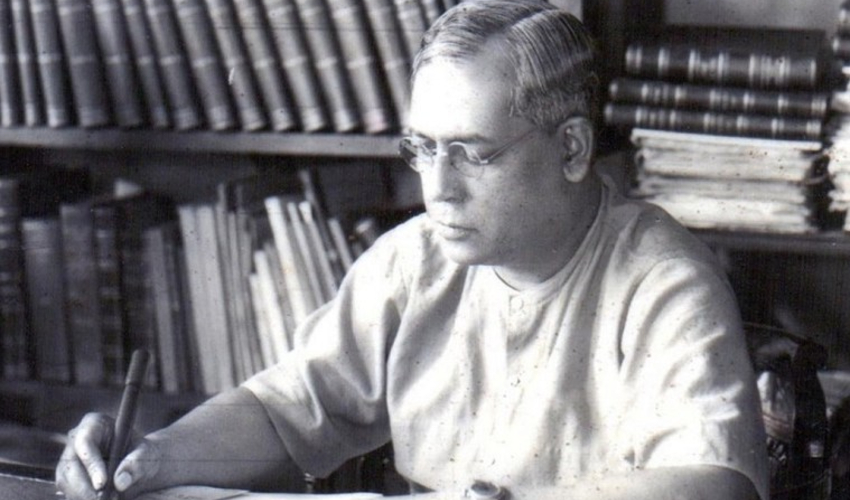
|
1970 |
| R.C. Majumdar on Shortcomings in Indian Historiography | |
| 1973 - 1993 | |
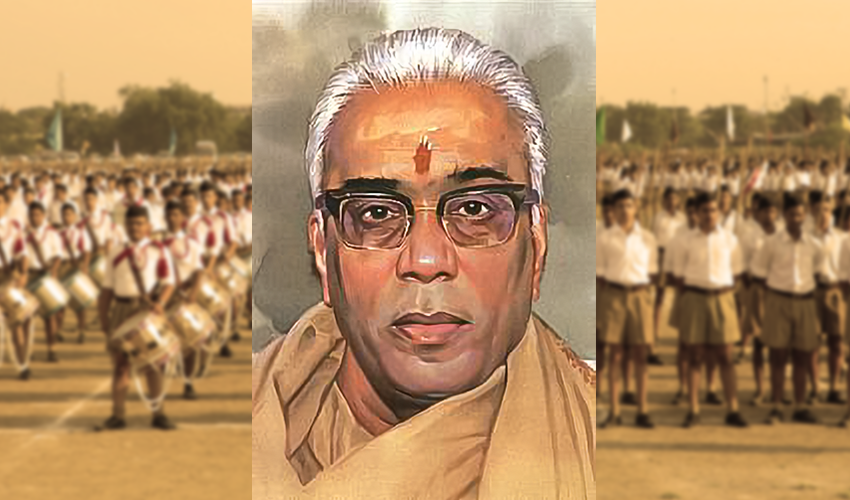
|
1973 - 1993 |
| Balasaheb Deoras: Kingmaker of the Sangh | |
| 1975 | |
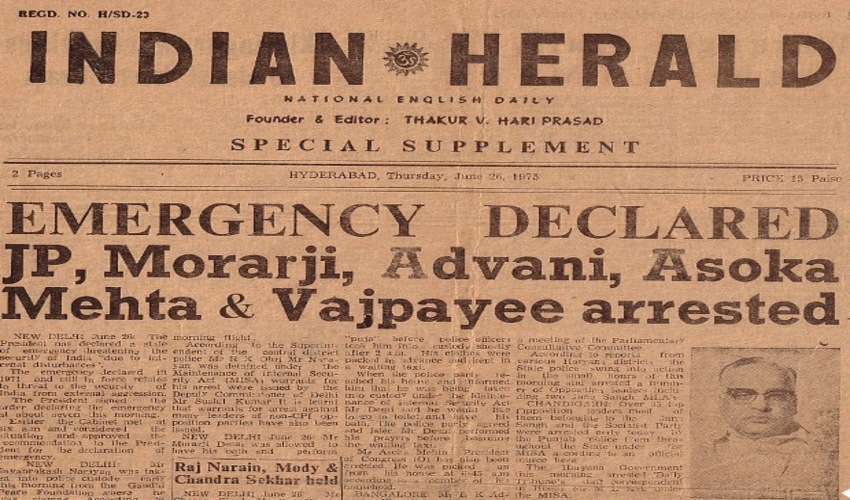
|
1975 |
| The Emergency Package: Shadow Power | |
| 1975 | |
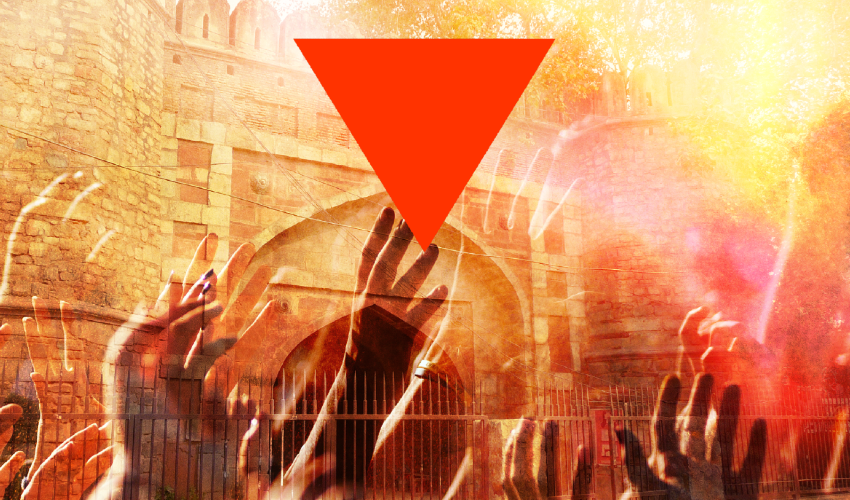
|
1975 |
| The Emergency Package: The Prehistory of Turkman Gate – Population Control | |
| 1977 – 2011 | |
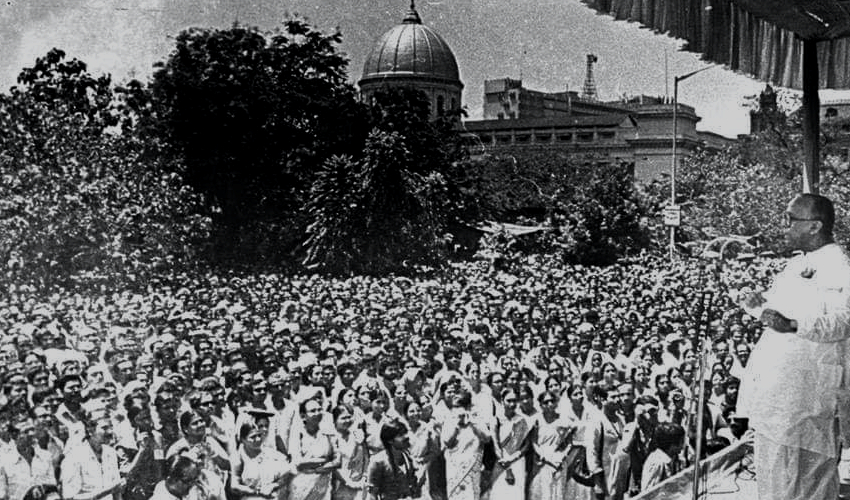
|
1977 – 2011 |
| Power is an Unforgiving Mistress: Lessons from the Decline of the Left in Bengal | |
| 1984 | |
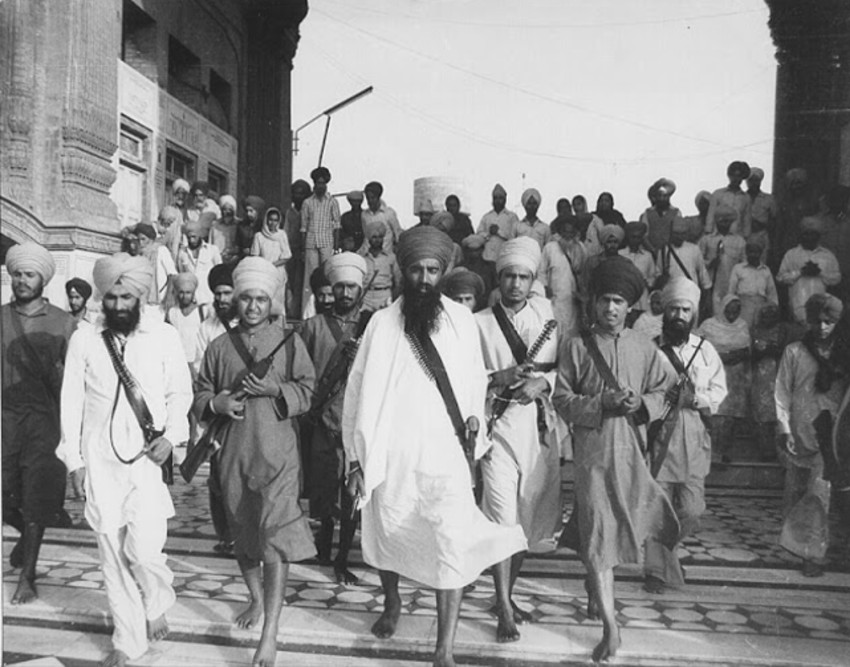
|
1984 |
| Mrs Gandhi’s Final Folly: Operation Blue Star | |
| 1916-2004 | |
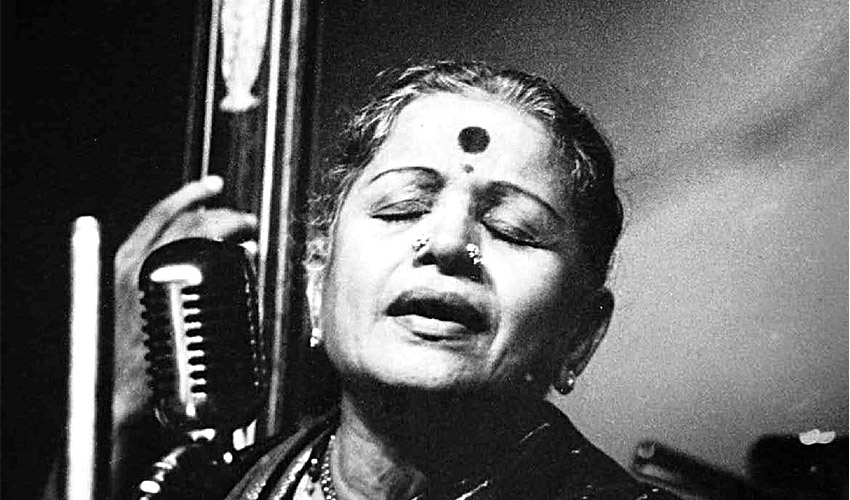
|
1916-2004 |
| Amjad Ali Khan on M.S. Subbulakshmi: “A Glorious Chapter for Indian Classical Music” | |
| 2008 | |
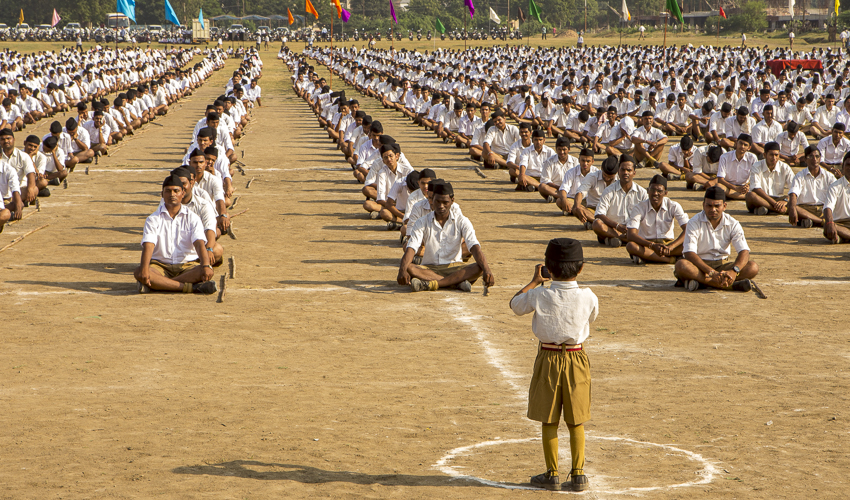
|
2008 |
| Whose History Textbook Is It Anyway? | |
| 2006 - 2009 | |
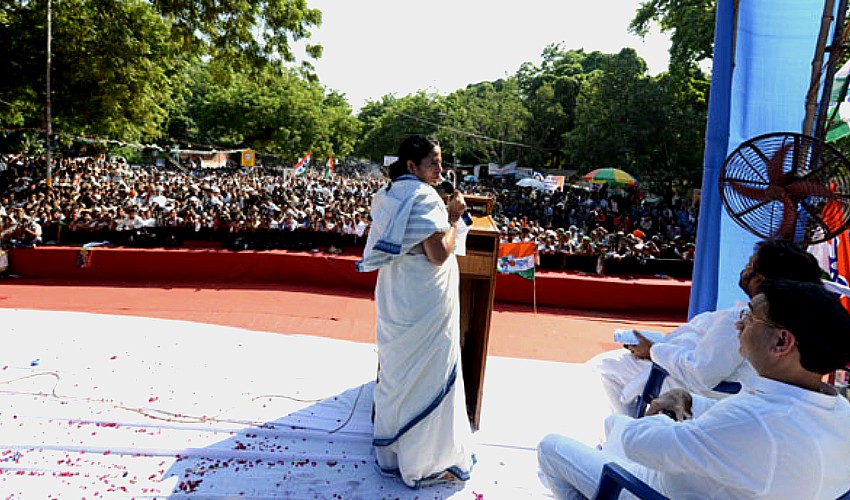
|
2006 - 2009 |
| Singur-Nandigram-Lalgarh: Movements that Remade Mamata Banerjee | |
| 2020 | |
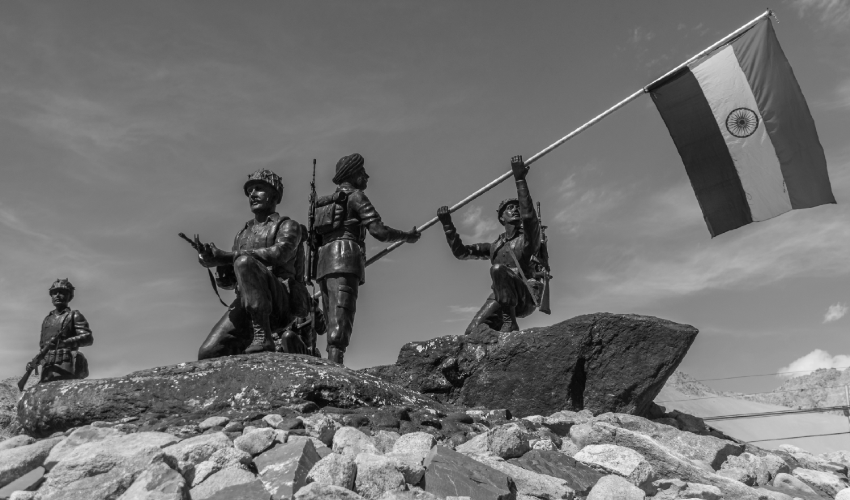
|
2020 |
| The Indo-China Conflict: 10 Books We Need To Read | |
| 2021 | |
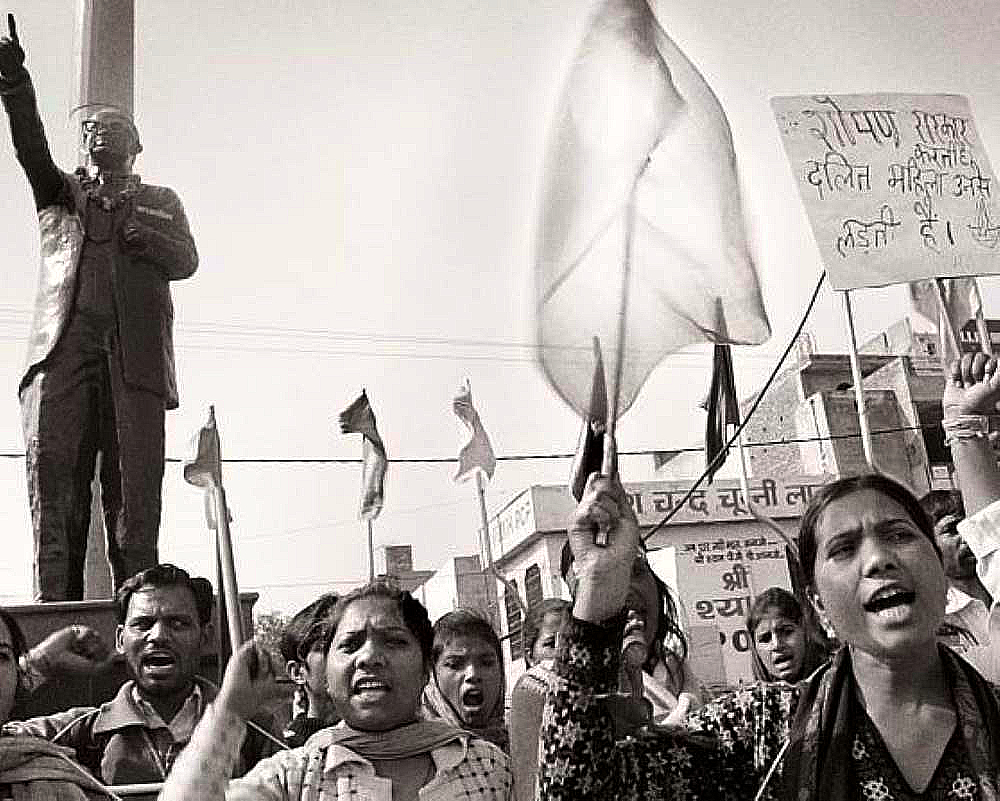
|
2021 |
| Singing/Writing Liberation: Dalit Women’s Narratives | |
Leave a Reply